Reduce Reuse RECYCLE















S4 Recycling is a hoax
Wait... what? Who is spreading this misinformation.
S6 Textiles Recycling Information and resources.
S7 Oh, in the name of progress
A look at lithium-ion batteries.
S10 What do I do with...?
An A-Z disposal guide.
S20 Home solar
Shedding some light on the subject.
S21 Product manufacturers should bear costs for recycling products.
S23 Food scraps and compost
Local business collects food scraps for composting.
The Springfield Materials Recycling Facility (MRF) Advisory Board is pleased to share this issue of the Reduce, Reuse, Recycle (RRR) guide as we celebrate the 55th anniversary of Earth Day. This guide is full of useful information. I encourage you to keep a copy handy so you can refer to it all year long.
In this issue of the RRR Guide, you will learn why recycling remains strong in western MA and how the materials from our homes and local businesses are in fact transformed into new products. With the growing use of electronics, from cell phones to lawn mowers, we have seen an increase in battery use and storage. Continue reading to learn more about how to keep your home, MRF workers, and fire crews safe from potentially dangerous battery fires. Further on in the guide, you will find a review of the textile waste ban, and see the many ways textiles enjoy a second life. Finally, we will talk about food waste. New food waste and composting programs are on the rise in the Pioneer Valley with many more opportunities--cost effective opportunities-to trim food waste and save money. Are you still confused about what you can recycle at your MRF? Think “bottles, jars, jugs and tubs”, rather than numbers. If in doubt visit the “What Do I Do With…?” piece in this publication and/or MassDEP’s fabulous resource RecycleSmart. This guide is jam packed with useful information.
S24 Household hazardous waste
Chemicals and mercury containing items and proper disposal.
S26 Why compost
Benefits and tips on how to fit composting in your life.
S27 Community recycling info
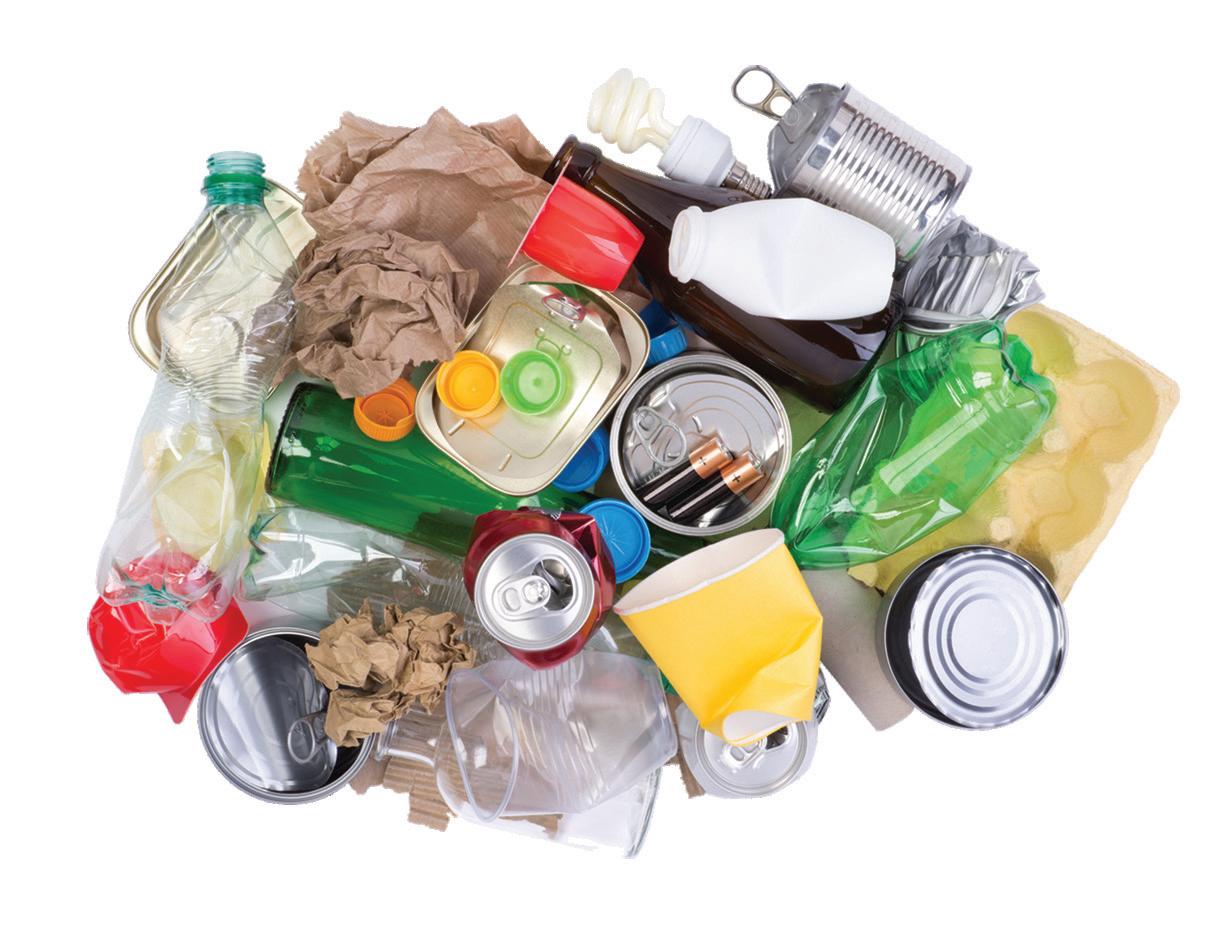
This guide marks the 17th year of a collaborative effort between The Republican and the Springfield Materials Recycling Facility (MRF) Advisory Board, with support from local advertisers. The guide is produced annually in honor of Earth Day (April 22) and will be available all year at springfieldmrf.org.
The Springfield MRF continues to be the cornerstone of recycling for 64 communities in western MA, processing an impressive 17,000 tons of dual stream recyclables each year. As Chair of the MRF Advisory Board, I am very proud of the Board’s work particularly as it relates to public education as well as the work the Board does in collaboration with the MRF operator, Waste Management Recycle America. For more than 35 years, this public-private partnership model has served the region well.
We are pleased to celebrate this 17th edition of the Reduce, Reuse, Recycle Guide in partnership with The Republican, and send special thanks to the Western Massachusetts business community that makes production of this useful resource possible through their advertising support.
Sincerely,
Arlene C. Miller
Arlene C. Miller Chair, MRF Advisory Board
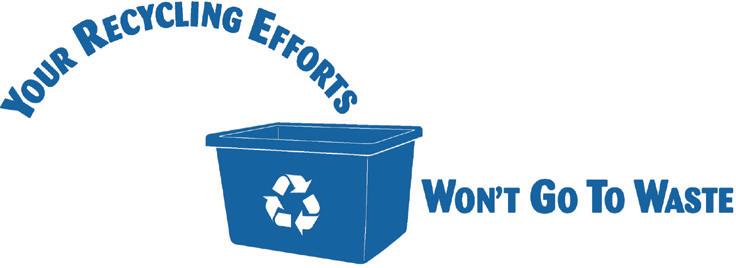

MRF Advisory Board members, Jan Ameen (Franklin County Solid Waste Management District), Liz Bone, (Hampden County Rep.), Tracy DeMaio (Hampden County Rep.), Amy Donovan (Franklin County Solid Waste Management District), Abbey Massaro (Hampshire County Rep.), Arlene Miller (Hampden County Rep.), Susan Waite (Mass DEP), and the RecycleSmart Team at MassDEP wrote or contributed to this publication.
Arlene Miller, Chair of the Advisory Board says, “It is our hope that both residents and businesses continue to find the Reduce, Reuse, Recycle Guide a valuable tool in managing wanted and unwanted materials. We appreciate the advertisers who make this publication possible. Please support our advertisers and tell them you saw their ad in this Recycle Guide!”
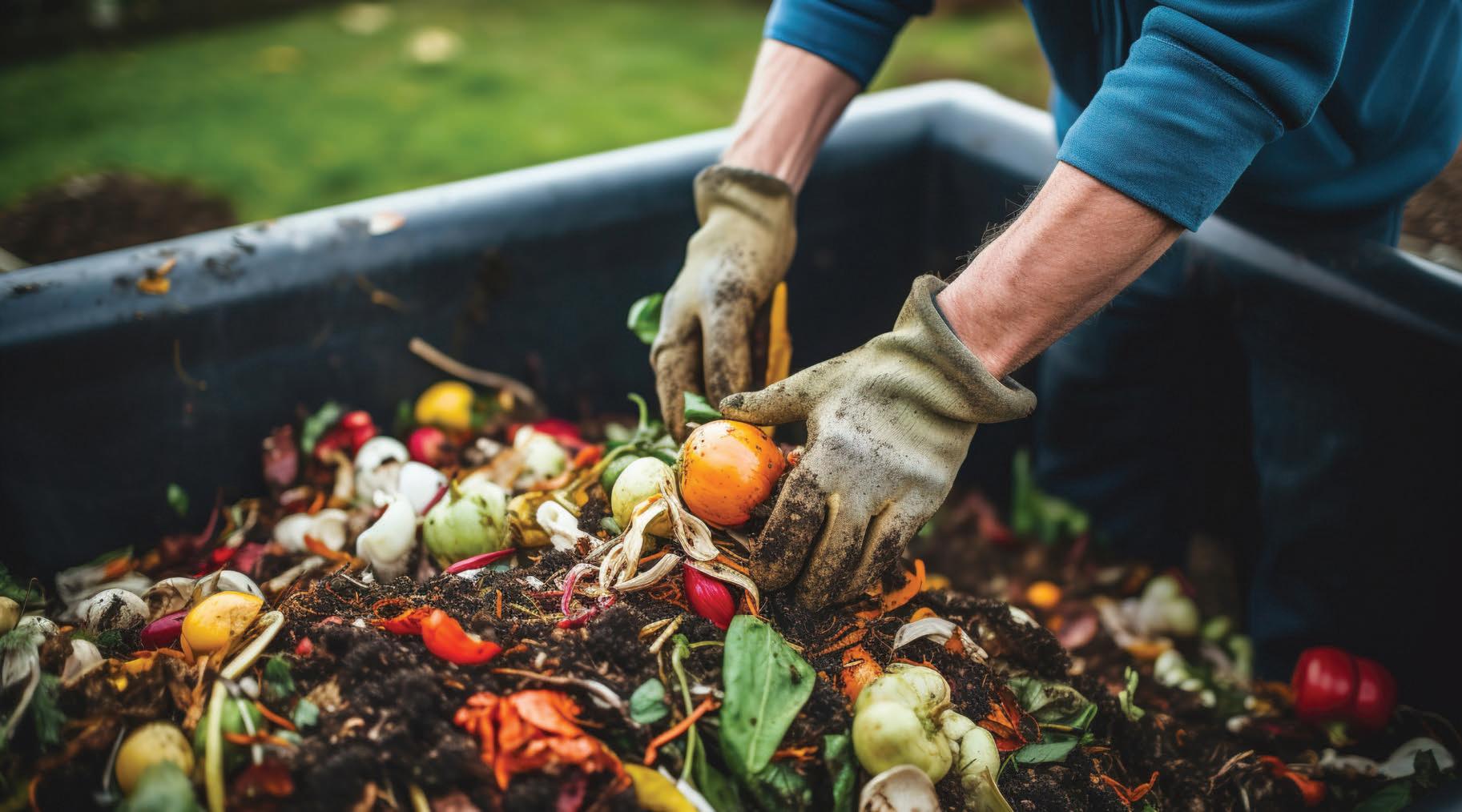
At USA, we are committed to staying at the forefront of recycling innovation, continuously finding better ways to repurpose the everyday items we throw away.
Like our Food Scraps Recycling Program, which allows us to take discarded organic material and turn it into renewable energy and nutrient-rich soil amendments.
Current and new USA customers in Amherst and select surrounding communities can sign up now for Curbside Food Scrap pickup ser vices. We of fer both weekly and biweekly collection options dependent on your needs. Please call USA Customer Ser vice at 800-998-0983 or visit our website usarecycle .com for more information.
Keeping waste out of our landfills, reducing greenhouse gas emissions, and contributing to a cleaner planet – it’s all par t of our mission to transform the way we recycle and create sustainable communities for generations to come.
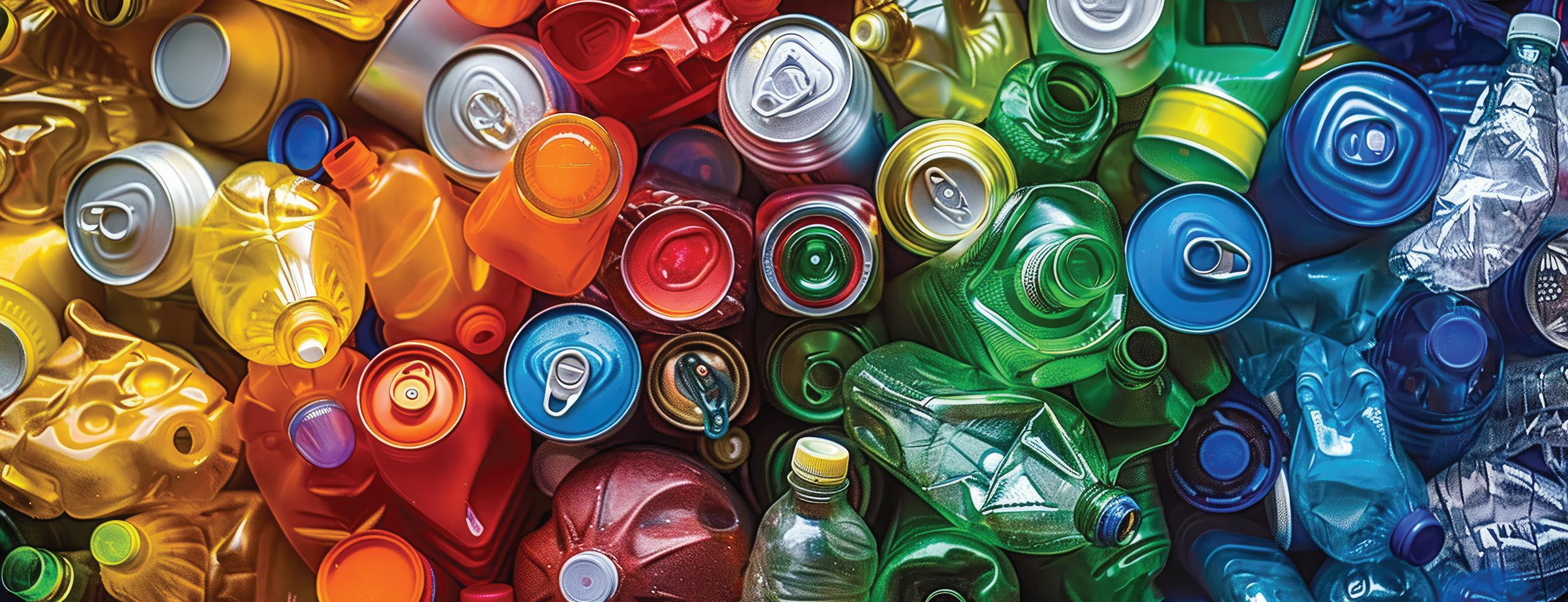
K eith O ’C onnor
SPECIAL TO THE REPUBLICAN
At least that is what naysayers want you to believe, that we are simply trashing our recyclables, which is not the case. Recycling is strong in Massachusetts and Connecticut.
Criticism comes on many fronts, even from The New York Times which ran a guest opinion piece on Feb. 14 entitled: “The Story You’ve Been Told About Recycling Is a Lie.” The essay contained many facts refuted by industry experts both around the nation and locally. Among the claims - recyclables sorted and placed on the curb for pick-up are mixed with garbage and shipped overseas instead of the nearest landfill.
Then there was a press release shortly afterwards from Texas A&M titled: “The United States Is Importing Trash, Texas Could Help Change That.” Authors misleadingly claimed American companies pay to import trash from China, Mexico and other parts of the world.
Madelyn Bond Hart, an outreach specialist at USARecycle in Enfield, Conn., noted global recycling statistics often are the culprit for misinformation.
“While internationally there are countries that struggle to recycle, domestically we have a very strong recycling infrastructure. A study from The Recycling Partnership found
that over 73% of American households have access to recycling. We fight misinformation by providing a Learning Center platform on our website for our commercial and residential customers to learn about the recycling process and to watch videos of our facility in action at USARecycle.com/learning-center,” Hart said.
“We have a wide range of domestic facilities that sort, process, and remanufacture recycled commodities into new consumer goods. The vast majority of materials we process at our recycling facility have strong domestic outlets that make selling material internationally unnecessary,” said Chris Lucarelle, Area Vice President, WM of New England/Upstate New York, based in Foxborough.
“There are many positive benefits to recycling, chief of which is to help save the environment and not send everything to the landfill, many of which can be processed and used again to make other materials,” said Michael Moores, Waste Management Plant Manager with facilities in Springfield.
Recycling helps protect our precious environment which is in danger. It saves resources, help to prevent pollution which is yet another big problem today, saves money and helps to reduce the need for land-
fills and other costly ways of disposal.
Hart noted they are removing valuable materials from the waste stream.
“If something can be remanufactured into a new consumer good, it reduces the need for raw/virgin materials which are often finite. Manufacturing new goods from recycled material is often more energy efficient than making them from scratch,” she said.
For example, paper and cardboard fibers can be processed and recycled numerous times, into new boxes, newspaper, egg cartons and more.
process and market the materials,” Lucarelle said.
“While the demand for recycled materials has grown significantly over the past several years as a result of sustainability commitments by brands to reduce waste and increase recycled content in products. we need four to five times the plastic we recycle today to achieve the goals many brands have set. WM’s investments
hazardous items such as propane tanks, batteries, sharps or chemicals, and no tanglers including hoses, wires, chains or electronics.
It’s also good to remember that facilities have different capabilities, so it is important to check with your recycling collection service provider to determine where your materials go.
“My recommendation is to
“While internationally there are countries that struggle to recycle, domestically we have a very strong recycling infrastructure."
Aluminum and steel are melted down and turned into car parts or new containers. HDPE (laundry detergent bottles/milk cartons) and polypropylene (yogurt cups) can be turned into new containers, lawn chairs, buckets, and kids’ toys. Glass can be turned into new bottles/jars, fiberglass, sandblasting medium, glass for art, and used as a concrete strengthener called pozzolan.
“States across the country are passing or planning laws requiring companies to use recycled content in new products and packaging. The more demand there is for recycled materials, the higher the value for those commodities. The result is a lower overall cost to
in recycling infrastructure are helping meet this demand. WM hasn’t planned to invest $1.4B in recycling infrastructure between 2022 and 2026 for the commodities to be thrown out,” he added.
If you need a refresher course on recycling materials, Recycle Smart offers a guide on their website (recyclesmartma.org) that looks at what can be recycled such as metal, food and beverage cans; plastic bottles, jars, jugs and tubs; glass bottles and jars; paper and cardboard. Not meant for the recycling bin are recyclables that have been bagged, plastic bags or plastic wrap, food or liquid (empty all containers), clothing or linens,
recycle as much as you can that is acceptable for the recycling bins. People definitely need to educate themselves about what goes into those bins and what to keep out of them. For example, we see many people after Christmas trying to recycle their old or broken tree lights. It is things like that, any rope or rope-like material that can jam our machinery,” Moores said.
“At the end of the day, recycling is an opportunity for every one of us to have a positive impact on the environment. If we work together, we can improve recycling rates, strengthen our recycling systems and enable a more sustainable world,” Lucarelle said.
The regional materials recycling facility (MRF) in Springfield sorts, bales, and sells recyclable paper and containers from over 73 Western Massachusetts communities. Owned by the State of Massachusetts and operated with guidance from the Department of Environmental Protection and a local advisory board, the Springfield MRF has processed over one million tons of Pioneer Valley recyclables since it opened in1989.
The regional materials recycling facility (MRF) in Springfield sorts, bales, and sells recyclable paper and containers from over 73 Western Massachusetts communities. Owned by the State of Massachusetts and operated with guidance from the Department of Environmental Protection and a local advisory board, the Springfield MRF has processed over one million tons of Pioneer Valley recyclables since it opened in1989.

Please recycle these items:
Please recycle these items:
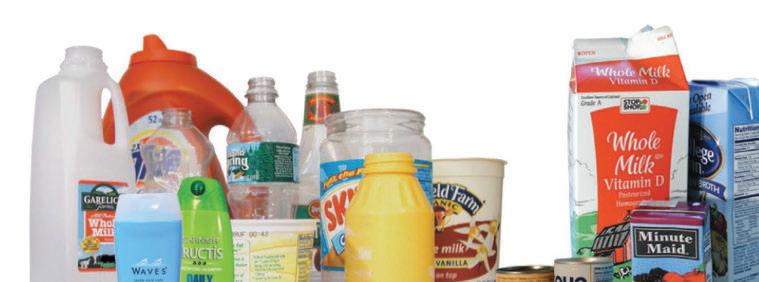

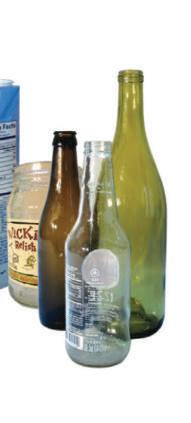
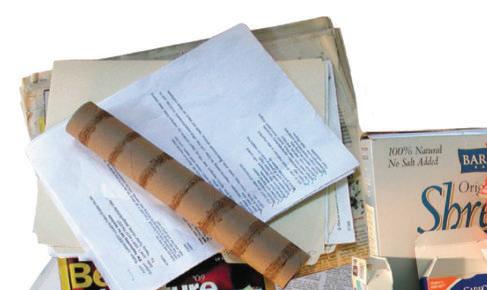

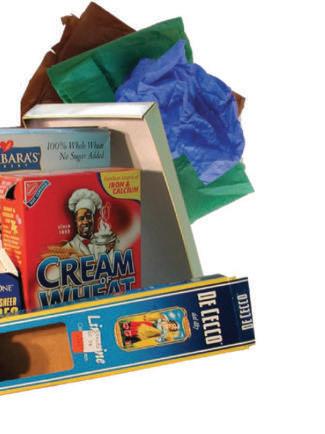
WE PROCESS YOUR HOUSEHOLD CONTAINERS AND PAPER.
greeting cards, gift wrap & gift tissue paper (no foils or metallics), paperbacks & phonebooks (covers okay), cardboard, paperboard, clean pizza boxes. Paper clips, staples and metal spirals are okay.
Metal cans, foil, milk and juice cartons, glass bottles and jars, plastic bottles/jars/tubs/jugs, clear plastic hinged containers (clamshells). Labels and caps on bottles are okay. Clean papers, magazines/catalogs, greeting cards, gift wrap & gift tissue paper (no foils or metallics), paperbacks & phonebooks (covers okay), cardboard, paperboard, empty pizza boxes. Paper clips, staples and metal spirals are okay.
*PLEASE KEEP THESE ITEMS OUT OF THE HOUSEHOLD RECYCLING.


the recycling facility, plastic bags, hoses and holiday lights cause safety hazards and shutdowns when they wrap around conveyor belts and equipment. Plastic bags, holiday lights and textiles can be recycled and/or donated in other locations. This NO list is not all-inclusive.
At the recycling facility, plastic bags, hoses and holiday lights cause safety hazards and shutdowns when they wrap around conveyor belts and equipment. Plastic bags and holiday lights can be recycled and/or donated in other locations. Rechargeable batteries should never go in any trash or recycling bin. It only takes one damaged, defective or recalled battery to combust without warning placing residents, workers and fire crews at risk.
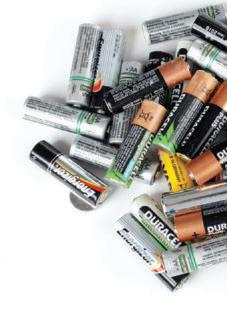
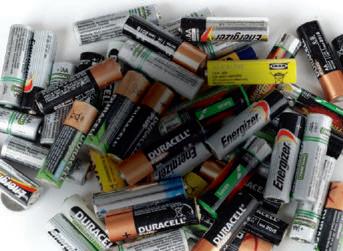











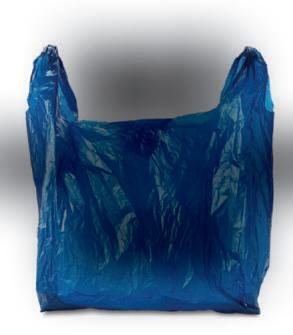
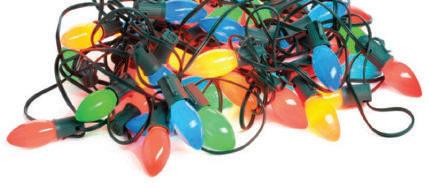




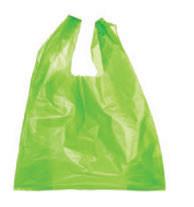
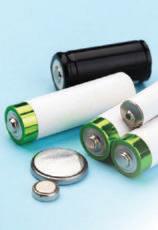
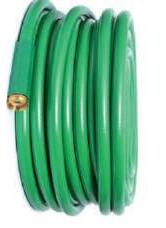
DO NOT INCLUDE THESE THEY CAUSE PROBLEMS PLASTIC BAGS CAN BE TAKEN TO A GROCERY STORE GARDEN HOSES ARE NOT RECYCLEABLE PLEASE PLACE IN TRASH BATTERIES SHOULD NEVER BE RECYCLED WITH HOUSEHOLD RECYCLING OR TRASH AS THEY MAY CAUSE A FIRE

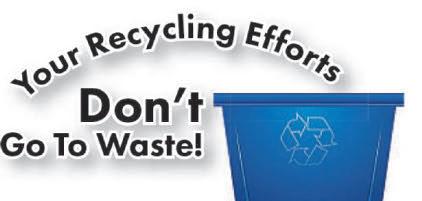
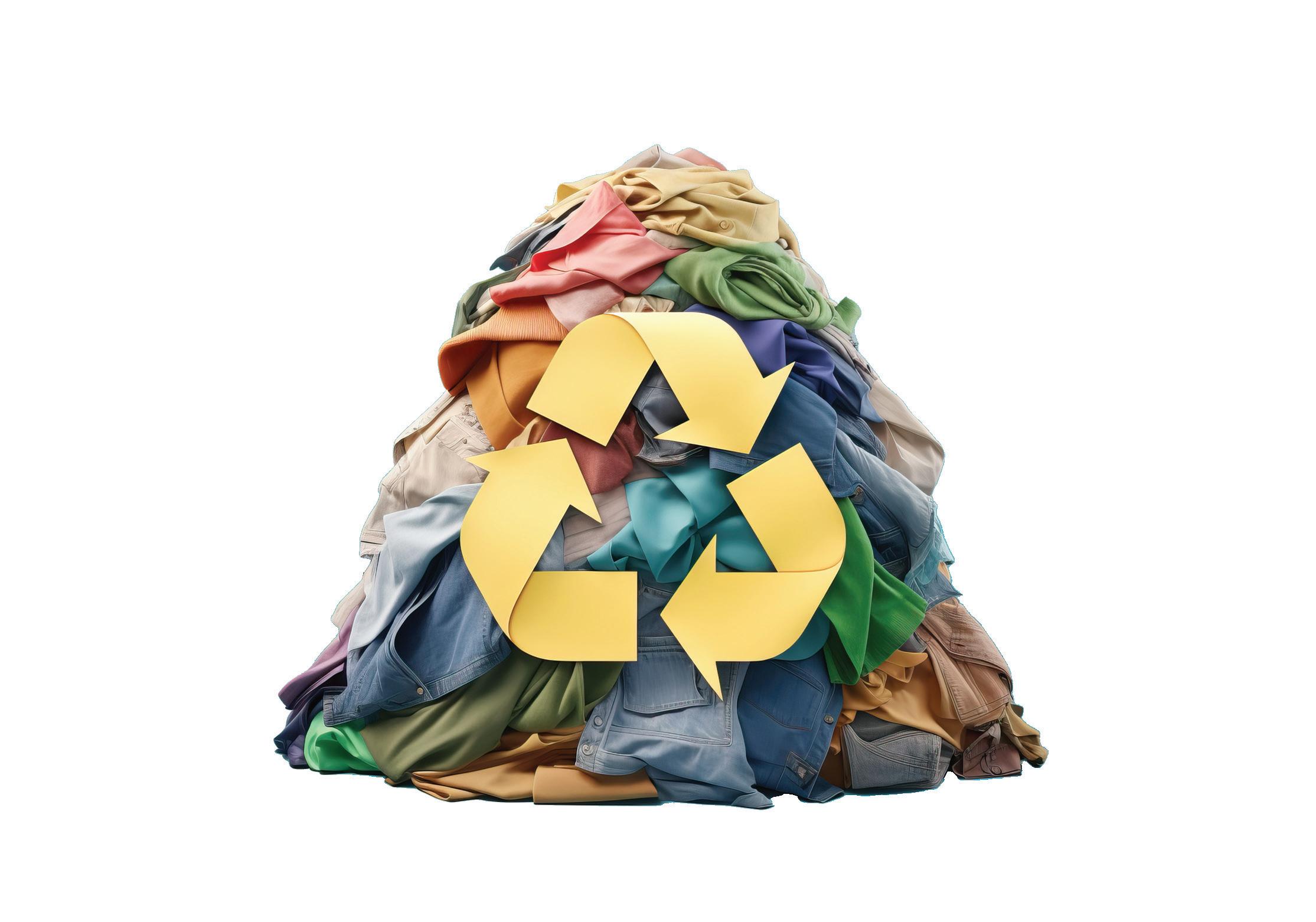
Cwith growing environmental impact ranging from releasing various toxins when they are incinerated to leaching dyes and chemicals as they decompose.
The state made it illegal to throw textiles away with your trash in 2022.
It is said that most of this could be reused as clothing, repurposed for other use or deconstructed into new fiber-based offerings and that even imperfect items have recovery value, something long known by Arlene Miller, chair of the Springfield Materials Recycling Facility advisory board.
“Whenever we can reuse a resource, we are helping the environment,” Miller said. “The interesting thing about textiles is they can be reused and recycled in many ways.”
She added that since the ban there are “more collection locations available, special clothing drives and a lot of visibility about the value in this material.”
Options listed below are
ment shop.
Businesses in used clothing include Plato’s Closet in West Springfield that “pays cash on the spot for gently used items that are in current style and in great condition.” The national chain’s resale stores cater to teens and twenty somethings.
The Pioneer Valley has a number of consignment shops for used clothing like La Glam in East Longmeadow and Soul Shine Consignment Boutique in the Feeding Hills section of Agawam that take a commission on sales and whose websites or social media accounts outline was is accepted.
The return of warmer weather also brings tag sales in yards and garages by private sellers where used clothing is often a popular item and where shoppers can usually barter over price. If you are thinking of having a clean-out, a town or city permit is often required for a yard sale.
The Community Survival Center’s thrift shop in the
and towels. For more information on the nonprofit, visit: https://communitysurvivalcenter.org/.
Other nonprofit recommendations include the Hartsprings Foundation. The organization accepts clothing in “good/reusable” condition for all ages that is then bulk purchased by the for-profit company Savers to help Hartsprings fund Big Brothers Big Sisters of America mentoring programs in Massachusetts and Connecticut. The donations are said to help keep more than five million pounds of clothing and small household items out of local landfills each year. For where to donate or to schedule a pick-up visit: https://hartsprings.org/.
The Salvation Army also accepts donations of clothing for all ages. Look under “Ways to Give” on the Menu tab to find a local drop-off location and thrift store or schedule a pick-up on the website: https:// easternusa.salvationarmy.org/ massachusetts/springfield/.
international nonprofit, which has about 3,000 locations in North America, is said to divert 4.6 billion pounds of reusable goods annually from landfills, and is working to lessen how the Western resale market of discarded textiles to salvage resellers abroad contributes to the global trash crisis. Visit its web page for further information: https://www.goodwillmass.org/.
Cancer Connection in Northampton accepts clothing donations for its thrift shop with more information at https://www.cancer-connection.org/thrift-shop.
Some organizations take clothing donations to meet specific local needs. Dress for Success Western Massachusetts accepts “gently used, nearly new professional attire” for women. For additional information visit: https://westernmass.dressforsuccess.org/.
Other sites like Freecycle, https://www.freecycle.org/ find-towns, and Buy Nothing,
maintains a search directory, Beyond the Bin, for what to do with items that “can’t go in your recycling bin but are too good (or too bad) to trash.” Planet Aid and Baystate Textiles are among the organizations that have donation bins in the Pioneer Valley. To find a bin location visit: https://recyclesmartma.org/beyond-thebin-search/.
For further information on Planet Aid, which accepts clean clothes, shoes, bedding, towels, curtains, sleeping bags, socks, underwear, and bras as well as items with minor tears, stains, or imperfections, visit: https:// www.planetaid.org/find-a-bin. For more information on Baystate Textiles, which accepts clothing, household textiles, accessories, and shoes, visit: https://www.baystatetextiles. com/.
For information on recycling visit the Springfield Materials Recycling Center website: https://springfieldmrf.org/ whats-recyclable-at-the-mrf.
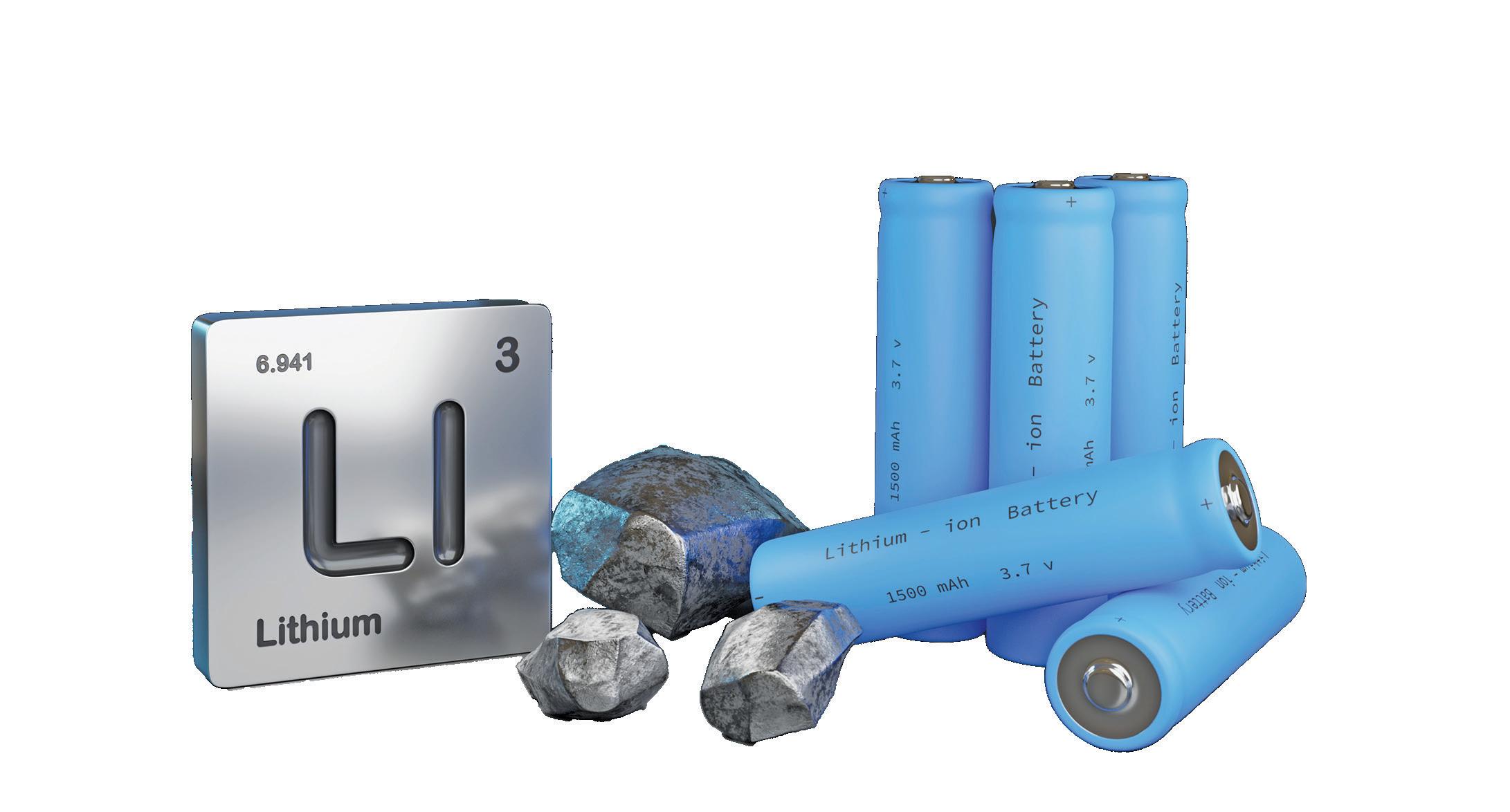
Where would we be today without the invention of lithium-ion batteries which make everyday pleasures possible powering everything from laptops to cell phones to computer, e-bikes and scooters and other toys, even hybrids and electric cars.
But with pleasure comes risks.
Lithium-ion batteries are not as safe as other rechargeable batteries with serious consequences, mainly fires, from being overcharged or discharged. And with age comes degradation.
Madelyn Bond of USA Waste and Recycling noted people are “absolutely not” aware of the number of devices and household objects that contain rechargeable batteries, and they need to be more cautious in their use and disposal.
“A damaged lithium-ion battery can undergo a process known as thermal runaway, which happens when the battery begins to generate heat, breaking down the electrolyte. As the battery continues to heat up, gases create pressure in the cell. Once the casing is under enough pressure, it can burst and cause a fire or explosion. Larger batteries can create long-burning fires, but even a
ries or burns,” Bond said.
“Most people would be surprised that vapes contain small rechargeable batteries in a very flimsy casing. Because they are plastic, many assume they can be put in the recycling bin,” she added.
Captain Carl Viera of the Longmeadow Fire Department agrees with Bond.
“The greatest safety concern with these batteries is the potential for fire or explosion. Nationwide, it seems like the greatest risks involve batteries that are damaged, defective, or counterfeit. It is important to utilize batteries for their intended use and as recommended by the manufacturer. There have been cases of batteries purchased at a discount that were previously damaged or incorrectly assembled that have caused fires,” Capt. Viera said.
“In New York City, where there is decent data available, the greatest risks seem to involve scooters and tool batteries. There have been cases of fires in trash trucks and facilities caused by batteries. It is important to properly dispose of them,” he added
According to UL Solutions, nationwide there have been 445 lithium-ion battery fires, 214 injuries, and 38 deaths in 2023. And in Massachusetts,
Fire Marshal Jon Devine, who believes the true number is even higher.
“We have had a few fires in Longmeadow that have been caused by lithium-ion batteries.
In one case, the lithium-ion batteries were installed in hover boards. These hoverboards, manufactured by two different
curred. Investigation revealed that the chargers were swapped when charging and the correct chargers were not being used to charge the hoverboards,” Capt. Viera said.
“Across our company we encounter numerous fires a week due to small battery fires. Most are able to be identified
runaway happening in a place where the battery is concealed, like on the tipping floor with the comingled material, or under a pile of paper. A concealed fire can burn undetected for a period of time, and by the time it is discovered it can be catastrophic,” Bond said, noting that a different company’s
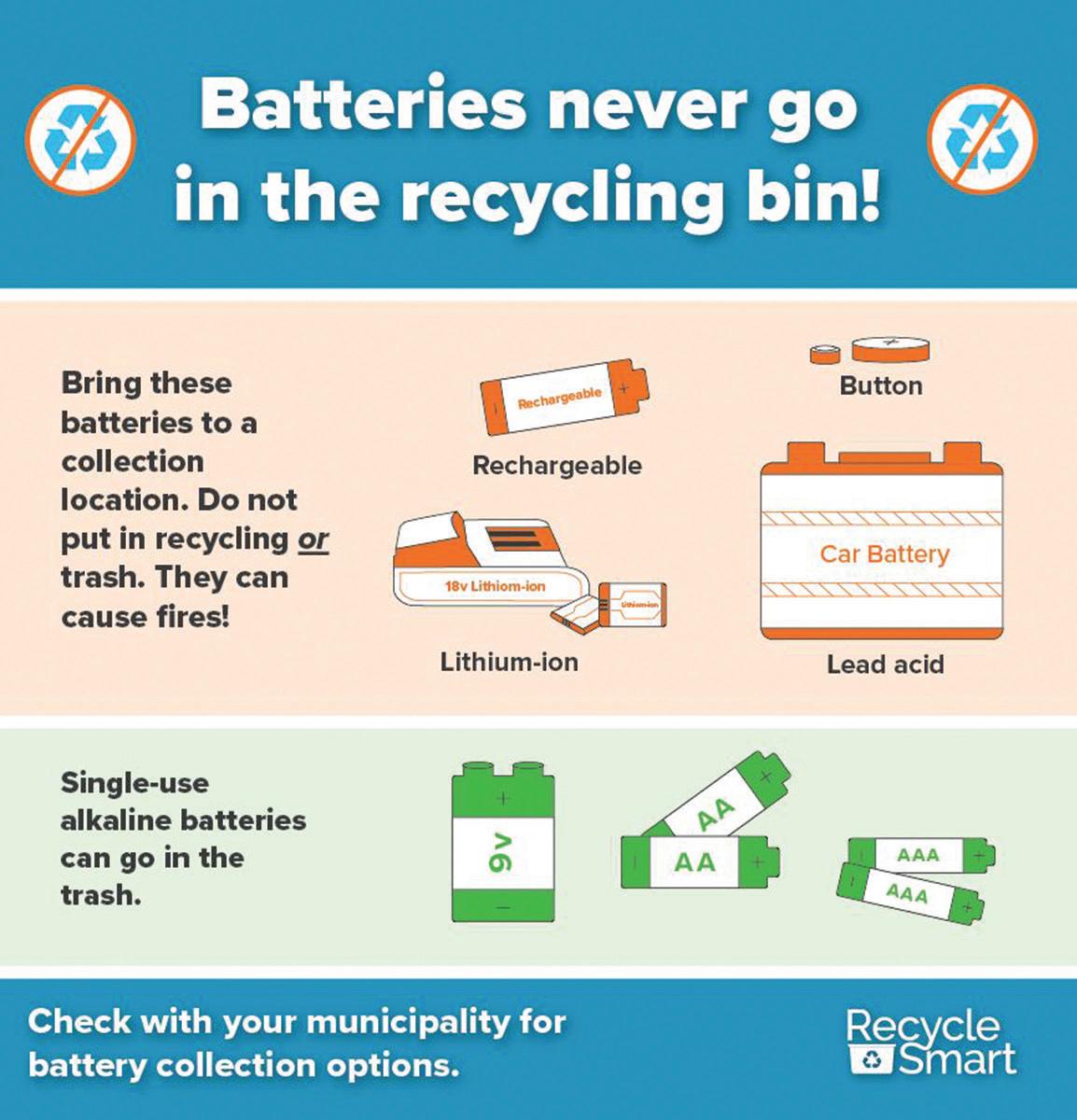
recycling facility in Connecticut burned for nearly 30 hours and was completely destroyed in 2023 due to what was believed to be a lithium-ion battery fire.
Captain Viera noted a good rule of thumb is to purchase items that are UL Listed. “UL Listed” means a product has been tested and certified by Underwriters Laboratories (UL) to meet specific safety and performance standards, ensuring it is safe for consumers and meets industry requirements per the UL website.
He offers the following safety tips:
• Always follow manufacturer instructions for any battery-powered device.
• When possible, store mobility devices, scooters, tool batteries, etc. outside of living/sleeping areas and do not block egress.
• Do not use discount or previously damaged batteries.
• Make sure chargers are appropriate for the batteries.
• Do not use damaged batteries and remove any damaged batteries from buildings.
• Store/charge batteries at room temperature, avoid excessive heat and cold.
• Always have working smoke detectors.
Additionally, Bond recommends before throwing away power tools or electronics, remove any rechargeable batteries from the device. Unplug devices from chargers when they are fully charged to prevent overcharging and heating of the battery.
So, what is a person to do with their unwanted lithium-ion batteries?
The U.S. Environmental Protection Agency (US EPA)
warns that lithium-ion batteries and devices containing these batteries should not go in household garbage or recycling bins and only be taken to separate recycling or household hazardous waste collection points. It is best to consult the manufacturer or use a resource like https://www.call2recycle. org/locator/ to find out what the best course of action is for disposal and the location nearest you - whether you have the battery in hand or want to dispose a computer, cell phone, scooter and others still containing the battery. You can also take rechargeable batteries to a retail collection location or a municipal recycling center that accepts them. There are more than 400 collection sites in Massachusetts that are free to residents.
To further educate yourself on lithium-ion battery safety scan below
Mass.gov Website

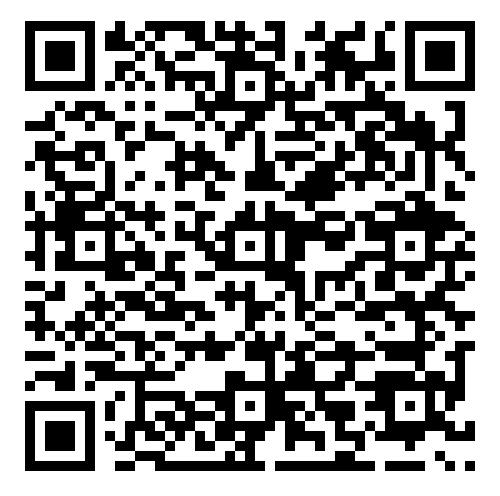
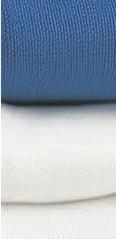

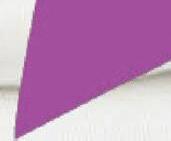
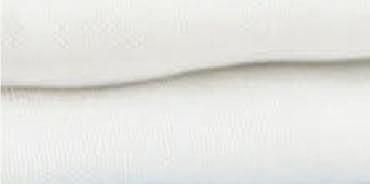



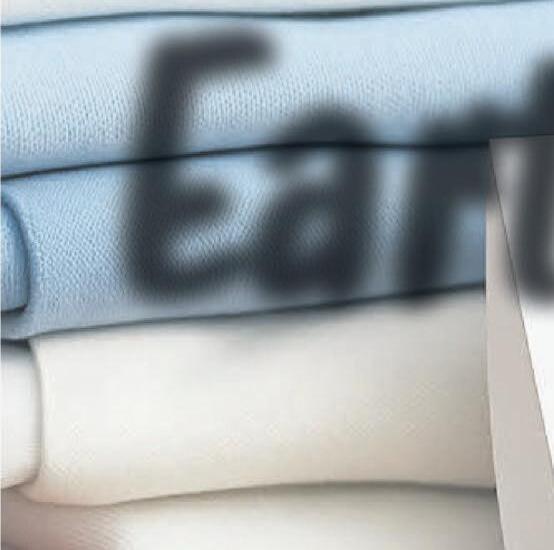
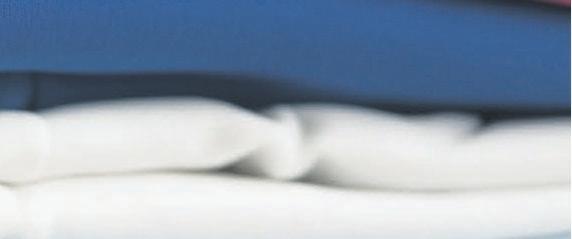

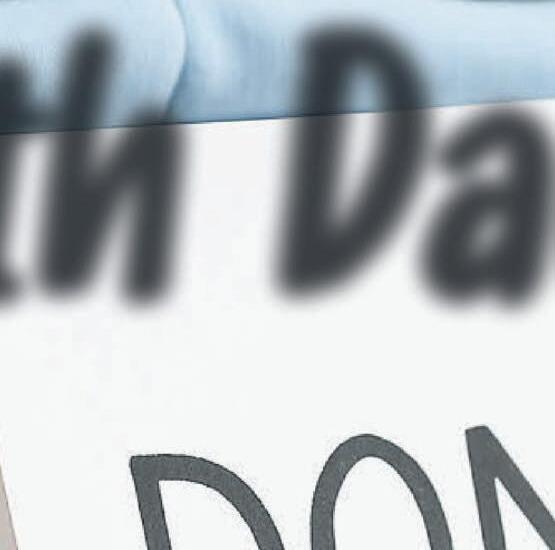
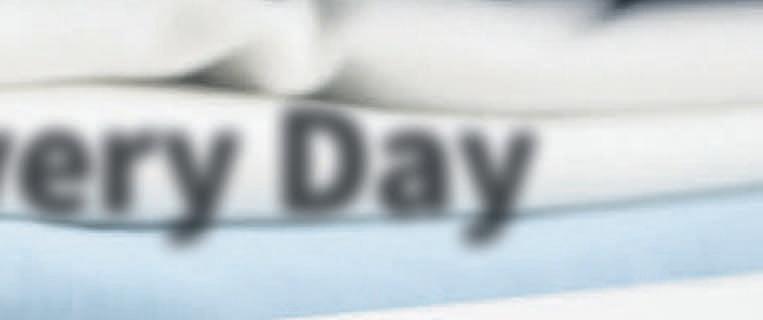
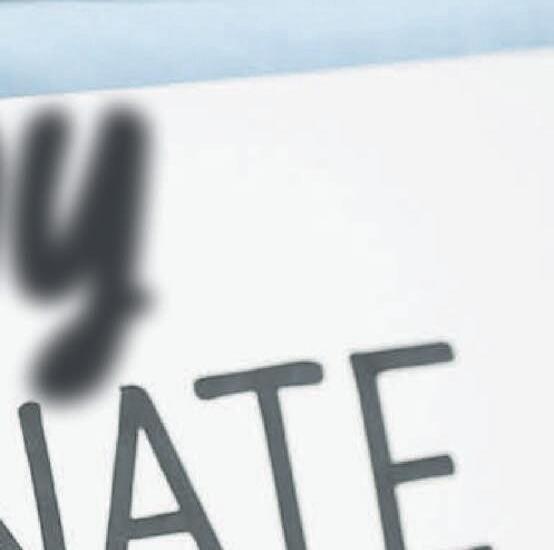




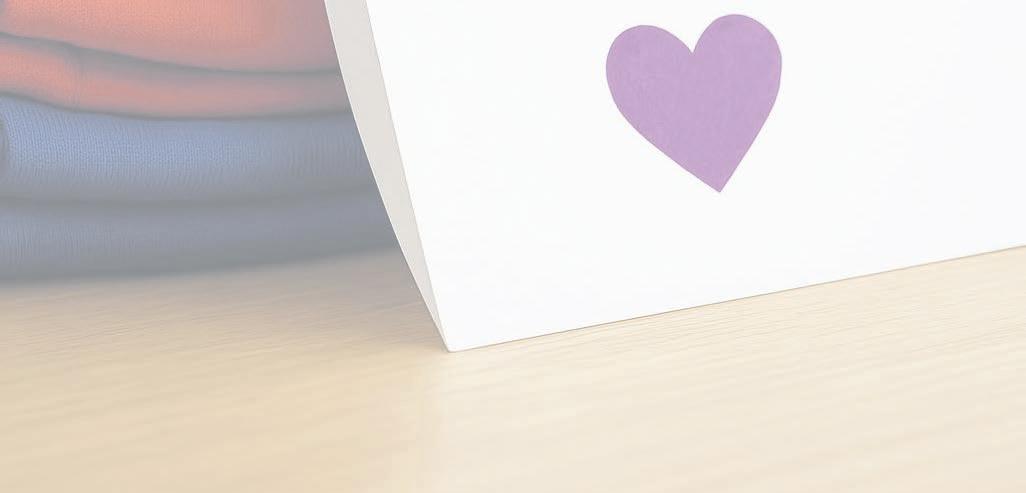
Use this A-Z disposal guide to find recycling, reuse, hazardous waste, or special disposal options for hundreds of items. Also see “Recycle in Western Mass” in this guide.
= Items that are hazardous or require special handling.
AEROSOL CANS
Empty aerosol cans belong in the trash, unless they contain hazardous material (e.g. paint, insecticide), in which case they are classified as household hazardous waste (see the Household Hazardous Waste Event page in this guide). A handful of transfer stations/ recycling centers accept completely empty, non-hazardous aerosol cans in scrap metal dumpsters (empty cans are completely silent when the button is pushed). See the Community Recycling Information table in this guide for local disposal information. More info: mass.gov/info-details/safely-manage-hazardous-household-products.
ALUMINUM FOIL, CANS & “DISPOSABLE” PANS
Rinse clean and recycle with bottles & cans. Acceptable items include aluminum pie pans and take-out containers, aluminum party cups, disposable roasting pans, and clean aluminum foil (form it into a loose ball no smaller than 3”). The “foil” lids from yogurt containers should not be recycled, as they contain a layer of plastic that causes issues when the aluminum is melted down.
ALUMINUM SIDING
(see “Scrap Metal”)
AMMUNITION, EXPLOSIVES
Call your Police Department for proper disposal instructions.
ANTIFREEZE
(see “Automotive Products”)
APPLIANCES (see “Scrap Metal”)
ARTS, CRAFTS & HOBBY ITEMS
Some paints, solvents and related materials are considered hazardous and should be brought to a hazardous waste collection. Always check the label before tossing in the trash. See the “Household Hazardous Waste” entry and the Household Hazardous Waste Event page in this guide for information on local hazardous waste collections. Call your local community art centers to see if they can accept your unwanted nontoxic art supplies. Crazycrayons. com offers a crayon recycling program. Staples stores now accept the following items for free recycling: crayons & colored pencils, glue sticks & bottles (empty), pencils & pencil pouches, pens, markers & highlighters (staples.com/ stores/recycling).
ASBESTOS
There are strict removal and disposal requirements for asbestos. Contact the Western Region of the Mass Department of Environmental Protection: John Moriarty: john. moriarty@mass.gov, 413-7841100. To find licensed asbestos contractors, go to mass.gov and type “Asbestos Contractors” into the search bar.
AUTOMOBILES (see “Vehicles”)
AUTOMOTIVE PRODUCTS
Automotive products contain hazardous materials and must be handled with care. Do not dispose of in the trash, on the ground or down the drain. Plastic automotive product jugs that are empty and welldrained belong in the trash (replace caps first). Do not recycle them.
Many towns accept automotive products at transfer stations or hazardous waste collections. See the Community Recycling Information table and Household Hazardous Waste Event pages in this guide.
• Motor oil
Even a small amount of improperly disposed motor oil will contaminate water and soil. In Massachusetts, retailers that sell motor oil are required by law to accept
up to two gallons of used oil at no charge with an original sales receipt. Many auto supply stores, auto repair shops and quick oil change chains will accept used oil even if you didn’t buy it from them. Some towns accept motor oil at transfer stations or hazardous waste collections. Valley Recycling in Northampton (413-587-4279; valley-recycling.us) accepts clean used motor oil. For assistance, call the MassDEP Used Oil Hotline at 617-556-1022.
• Motor oil filters
Some auto supply stores and auto repair shops accept oil filters for free recycling. Some municipal transfer stations accept motor oil filters. Oil filters may be put in the trash or recycled in scrap metal collections only when the oil has been completely drained (while filter is still warm, puncture the dome top and drain into a collection container. Collect oil drips and dispose of them properly as used motor oil; see above entry).
• Antifreeze
Antifreeze is not only hazardous; its deceiving color and sweet taste may attract children, pets and wild animals. Consider having your vehicle’s radiator flushed at a service station to avoid the responsibility associated with proper storage and disposal. Some auto supply stores accept antifreeze for free recycling. Antifreeze can be brought to a household hazardous waste collection; see the Household Hazardous Waste Event page in this guide.
• Brake fluid
Brake fluid is hazardous and must be brought to a household hazardous waste collection.
(see “Plastic Pouches”)
BAGS (see “Plastics”)
BALLASTS
(see “Mercury & Mercury-containing Products”)
BATTERIES
Never put batteries of any type in a regular recycling bin,
as many batteries pose a fire danger in collection trucks and recycling facilities. Common single-use household batteries (alkaline, carbon zinc and zinc chloride in sizes A, AA, AAA, C & D, 9-volt, lantern size) manufactured after 1996 don’t contain mercury or other hazardous/recyclable materials and can be thrown away as trash. (Before disposal or storage of 9-volt batteries and lantern batteries, put plastic packing or electrical tape on the contacts.) Check labels carefully; some batteries that require special handling resemble alkaline batteries. ALL other battery varieties contain hazardous materials and require special disposal. Never put these batteries in recycling or trash bins. There are many free, convenient drop-off options for batteries, such as municipal transfer stations, Staples stores, Home Depot, and Lowe’s Stores. See the Community Recycling Information table in this guide or search online with your zip code at earth911.com. Some hazardous waste collections accept batteries; see the Household Hazardous Waste Event page in this guide.
More options for specific batteries:
• Button batteries (found in watches, hearing aids, electronics and some toys) are often accepted free of charge at watch/jewelry shops or audiologist offices.
• Lead acid batteries (used in vehicles, boats, motorcycles, kids’ ride-on toys, some lawn mowers, exit lights and UPS power backups) are accepted by the retailer from whom you buy a new one (they are required to take one back at no charge). Many transfer stations accept them, and scrap metal recyclers typically pay for lead acid batteries. Some auto parts stores provide a gift card to customers who bring in a vehicle battery, whether the battery was purchased there or not.
• Lithium batteries (single-use batteries often used for cameras) can resemble alkaline
batteries, but these should be recycled properly: some municipalities accept them in battery recycling programs. Check all batteries carefully before disposal; look for “Lithium” on the label.
• Rechargeable batteries contain heavy metals and can start fires; they should never be put in trash or recycling bins. Rechargeable batteries are found in rechargeable electronics such as cell phones, cordless phones, power tools, laptops, tablets, UPS battery backups, rechargeable toys, baby monitors, solar lights, robotic vacuum cleaners, emergency medical equipment, e-bikes, digital cameras, camcorders, rechargeable devices such as toothbrushes, razors, cordless drills, flashlights and hand-held vacuum cleaners, plus batteries that can be recharged with a battery charger. Most transfer stations have special pails or boxes for rechargeable batteries, as do Staples, Home Depot, and Lowes stores. Rechargeable battery chemistries include Nickel Cadmium (Ni-Cd), Nickel Metal Hydride (NiMH), Lithium Ion (Li-ion), Nickel-Zinc (Ni-Zn), and small Sealed Lead Acid (Pb) batteries (up to 11 pounds). Rechargeable batteries are sometimes labeled “mAh” or “RECYCLE - RBRC” inside a circular logo. For more information and options for recycling rechargeable batteries, visit: call2recycle.org.
• Lithium and Lithium-Ion batteries pose fire risk: if a lithium battery becomes swollen or damaged, handle carefully and bag separately, then place battery in a metal canister or glass jar surrounded by clay kitty litter or speedy dry. Bring to your town’s transfer station or hazardous waste site.
They may look recyclable, but beer and soda cartons or cases contain plastic or bonding chemicals so that they stay strong when wet. The plastic and chemicals contaminate recyclable paper. Please place all “paper” beer and soda packaging in the trash.
Plastic six-pack rings and fourpack “snap top” can carriers are not accepted in household recycling. Flexible plastic six-pack rings get wrapped around sorting equipment at recycling facilities and pose a danger to wildlife. Cut up rings and put in the trash or collect and mail six-pack rings to the RingRecycleMe program (ringrecycleme.com).
“Snap top” six or four-pack can carriers are often made with 100% recycled plastic, which provides a market for recycled plastic. However, snap tops are not acceptable in recycling because their size and shape make them challenging to sort. Mass Brew Bros has established a can carrier reuse program; save your snap tops and find a drop off location near you at: massbrewbros.com/can-carrier-recycling and paktech-opi. com.
Working bicycles in good condition may be gifted to individuals via an online sharing group (e.g. a “Buy Nothing” Facebook group or Freecycle. org), or offered to charities (search online via “bicycle donation”) and other organizations that can reuse them. For recycling options, see “scrap metal.”
Before disposal or recycling, all engine-type fluids, batteries, and propane tanks must first be drained or removed and properly disposed of. Metal boats are often accepted at scrap metal dealers. Small boats are sometimes accepted as bulky waste at municipal transfer stations (call to inquire, see local contact info in the Community Recycling Information table in this guide). Valley Recycling in Northampton (413-587-4279; valley-recycling.us) accepts boats and campers for a fee. See more disposal suggestions under “Vehicles.”
Books in good condition may be sold (used bookstores, tag sales), donated (public libraries, fund-raising sales, drop boxes at transfer stations), or shared at book exchanges or swap shops. Little Free Library book-sharing boxes allow anyone to leave or take books for free; see a map of locations
at: littlefreelibrary.org/map. Roundabout Books, a Greenfield-based bookstore accepts dry books in any condition and has a special arrangement to recycle unsalable books of any type (roundaboutbookstore. com).
If not suitable for reuse, paperback books and phonebooks are accepted in household recycling programs, in small quantities. Hardcover books are not accepted in household recycling programs; rip out the pages and recycle those. Covers and spines from hardcover books must be placed in the trash.
Plastic caps & lids are recyclable only when fastened to a plastic bottle, jar, jug, or tub. Loose plastic caps should be placed in the trash, as items less than 3” in diameter can create safety hazards and shutdowns at recycling facilities. Metal screw-top lids from glass jars (e.g. pasta sauce, pickle jar) should be attached to the container. Loose metal can lids are acceptable, but it is best to push them inside the can before recycling.
Clean cardboard, boxboard, and paperboard boxes are recyclable (e.g., boxes from cereal, crackers, tissues, shoes, gifts, etc.) Attached plastic windows may stay, but discard all plastic liners and packaging. Flatten.
Pizza Boxes are recyclable, as long as they are empty. A 2020 study found that greasy pizza boxes do NOT cause problems for recycled paper manufacturers. It is now OK to put the entire empty pizza box into recycling (remove all crusts, food, foil, plastic, or waxed paper). Link to the study: tinyurl.com/pizzaboxes2020.
Frozen food boxes, ice cream cartons, case boxes from soda or beer, and kitty litter boxes should be placed in the trash. These boxes are made with “wet strength paper,” which contains plastic or bonding chemicals that help the boxes to stay strong when wet. The plastic and chemicals contaminate recyclable paper. Do not put wet strength paper items in home compost bins or municipal or commercial compost programs.
(Air pillows) (see “Plastics”)
Construction & demolition (“C&D”) waste includes asphalt, asphalt shingles, bricks, cement, cinder blocks, clapboard, concrete, doors, flooring, insulation, lumber, mortar, plaster, plywood, roofing, sheetrock, tiles, windows and wood. Fee-based disposal options are available at many recycling/transfer stations; for more information, call the phone number listed for your town in the Community Recycling Information table in this guide. Vehicles with a capacity greater than 5 cubic yards are subject to strict disposal requirements for C&D wastes in MA. For more information: mass.gov/lists/ managing-construction-demolition-cd-wastes.
Building materials that are in good condition can be offered via an online free sharing group (e.g. Freecycle.org or a “Buy Nothing” Facebook group).
Wooden pallets can be reused or recycled as “clean wood waste.” Disposal options for large quantities include (but are not limited to) 360 Recycling (Westfield: 413-5620193), Martin’s Farm (Greenfield: 413-774-5631).
Note: pressure-treated wood should only be disposed of in a landfill. Do not put it in a backyard compost pile, a brush or chipping pile; do not burn it. For bulky waste disposal at local transfer stations, see the Community Recycling Information table in this guide.
Staples stores, Best Buy stores, and many electronic waste (e-waste) recycling programs accept digital cameras for free recycling.
Car seats are not accepted in household recycling programs. Used car seats should not be accepted (or purchased) for reuse at second-hand stores or swap shops at municipal transfer stations, as it’s impossible to know if they have been recalled or were previously damaged in an accident.
Once a year (typically in April) Target hosts a car seat trade-in event (tinyurl.com/
TargetCarSeatRecycle). Target accepts all types of car seats for recycling, including infant car seats, convertible car seats, car seat bases, harness or booster car seats, as well as car seats that are expired or damaged. Materials from the old car seats are recycled by Waste Management (WM) to create new products such as pallets, plastic buckets, steel beams, and carpet padding. Target will provide those who bring in a car seat with a coupon for 20% off a new car seat, travel system or similar item.
Flor® offers a free mail-back recycling program for Flor® brand carpet squares (flor. com/recycle). Some thrift stores accept small throw rugs, bathmats, and hall runners that are clean and in good condition. Or offer unwanted carpets, rugs and pads via an online sharing group (e.g. Freecycle.org, “Buy Nothing” Facebook group). For local disposal information, see the Community Recycling Information table in this guide.
This category includes “gable top” refrigerated cartons used to package milk and orange juice, plus shelf-stable “aseptic packaging” for almond milk, soup, and juice boxes. In dual stream recycling programs, cartons should be recycled along with bottles, cans, and containers (not with paper). Cartons are acceptable in single stream recycling programs in western Mass. Rinse cartons, discard straws; plastic caps and spouts may remain on carton. Do not flatten.
“Paper” ice cream cartons are not accepted in recycling. Don’t include foil drink pouches (e.g., Capri Sun, Honest Kids) in municipal recycling. See “Plastic Pouches” in this guide for recycling options.
(see “Ink, Printer & Toner Cartridges”)
Cell phones should not be put in the trash due to their reuse value and hazardous/recyclable components. Never put cell phones in recycling bins. Dispose of cell phone batteries and power banks carefully; see “Batteries” in this guide.
Numerous charitable and for-profit organizations accept cell phone donations. Search online using “cell phone donation.” Stores that sell cell phones also accept them for free recycling, and many cell phone manufacturers offer buy-back programs through the mail. Many municipal transfer stations accept cell phones for special recycling programs. Lowes and Staples stores also accept cell phones for free recycling. For locations, search with your zip code at call2recycle.org/locator or earth911.com.
(see “Yard Waste”)
TerraCycle’s Free Cigarette Waste Recycling Program accepts extinguished cigarettes, filters, loose tobacco pouches, outer plastic and inner foil packaging for recycling into plastic lumber and other products. Go to terracycle. com and type “cigarette” in the search bar.
CLAMSHELLS & CLEAR MOLDED PLASTICS
(see “Plastics”)
CLEANERS
(see “Household Hazardous Waste”)
CLOTHING & TEXTILES
As of November 2022, textiles are banned from trash in Massachusetts. There are many local reuse and donation opportunities for all textiles and shoes. Deliver CLEAN & DRY textiles and clothing to drop-off boxes serviced by organizations such as the Salvation Army (easternusa.salvationarmy.org), Hartsprings (hartsprings.org), Bay State Textiles (baystatetextiles.com) and donation centers such as Goodwill Industries (goodwill. org). Most municipal transfer stations host textile drop boxes (see Community Recycling Info table in this guide). DO include items that are clean but torn, stained, with missing buttons or broken zippers, as these organizations sell damaged textiles to recyclers to be made into wiping cloths and insulation. Acceptable items include these CLEAN and DRY items: mismatched socks, shoes and gloves; all clothing and accessories
CONTINUED FROM PAGE S11
including belts, ties, underwear and purses; and linens such as curtains, toss pillows, light comforters, sheets, towels, and stuffed animals in any condition. Some animal shelters also accept old sheets, blankets, pillowcases, bedspreads, throw rugs and towels for reuse (call first).
To find local clothing consignment stores or quality used clothing, go to thethriftshopper.com. See also thredup. com, poshmark.com, swap. com, and wornwear.patagonia. com.
Bras can be donated to Salvation Army or Goodwill; any items that are not in good condition will be sorted, baled, and sold for textile recycling. New or gently used bras can be mailed to The Bra Recyclers for distribution to women in transition around the world: thebrarecyclers.com.
Some local non-profit organizations target specific types of clothing to benefit those in need, such as professional clothing (westernmass. dressforsuccess.org).
COAT HANGERS
Do not put hangers of any type in recycling bins: hangers get caught in machinery at recycling facilities. Metal hangers are accepted for reuse by some dry cleaners and are also accepted in scrap metal recycling dumpsters at most recycling/transfer stations. Unfortunately, plastic hangers are not recyclable and should be put in the trash when they are no longer useable. Hangers are reusable; offer via an online sharing group (e.g. Freecycle. org, “Buy Nothing” Facebook group). Some charitable organizations accept hangers for reuse or resale.
COMPACT FLUORESCENT LAMPS (CFLS)
(“see Mercury & Mercurycontaining Products”)
COMPUTERS & TV’S (see “Electronics”)
CONSTRUCTION & DEMOLITION WASTE
(see “Building & Remodeling Materials”)
COOKING OIL
Never pour cooking oil down
the drain. Special recycling barrels for used cooking oil are available at a few municipal transfer stations in the region. Otherwise, put the oil in its original container, replace the cap, and place it in the trash. Western Mass Rendering offers dumpsters for large collections: 413-569-6265.
CORKS
Corks should never be put in recycling bins. Remove corks from bottles before recycling. Natural corks can be chopped up and added to a backyard compost bin. Local drop-off options for corks include Table & Vine in West Springfield and Ryan & Casey Liquors in Greenfield (accepts natural wine & champagne corks only; no plastic corks or screw caps). There are no local recycling options for plastic corks. TerraCycle.com offers a fee-based recycling program for plastic beverage corks only; natural corks are not accepted. Corks can be reused in many creative ways (search online for “cork art”), or offered to others on a free online sharing site such as Freecycle.org, or a “Buy Nothing” Facebook group.
Cosmetic containers are not recyclable in household recycling programs. (Exceptions: empty containers from cosmetics that are packaged in plastic or glass bottles, jars, or tubs can be recycled.) Clean cosmetics containers (e.g any brand of compact, lipstick, mascara, tubes, droppers) are accepted at Pact Collective’s cosmetic recycling bins at Sephora in the Holyoke Mall and the Ulta Beauty store in Hadley (pactcollective.org). Mail-in recycling programs for empty cosmetics containers can be found at terracycle.com and maccosmetics.com/backto-mac.
CUPS
The only types of “disposable” cups that are accepted in household recycling are aluminum party cups and clear plastic cups (rinse; lids and straws go in the trash). Other types of plastic cups are NOT acceptable for recycling: “Styrofoam”/polystyrene (#6 plastic), colored keg cups, and opaque plastic cups. Mail-in recycling programs for #6 cups can be found at terracycle.com.
If a clear cup is labeled “compostable,” it should NOT go in recycling. Compostable cups are accepted in most municipal or commercial compost programs. “Compostable plastic” products are not designed to compost in home compost bins or piles.
Paper cups, including traditional paper coffee cups, are not recyclable. Plastic coffee cup lids are too small to be recycled. Cardboard sleeves are recyclable. Some paper coffee cups (and some lids) are designed to be compostable in municipal/commercial compost programs; check for text that says “BPI certified” or “compostable.”
Clear plastic egg cartons are recyclable. Paper and Styrofoam™ egg cartons are not accepted in recycling but are often reused by backyard chicken farmers. Paper cartons may be composted in municipal compost collections or in home compost bins, if ripped into pieces.
State regulations prohibit screen-based electronics such as laptops, tablets, iPads, TVs and monitors of any type from going in the trash. Most municipal transfer stations offer electronics recycling (e-waste) programs. Disposal fees may apply; see your town’s website or call town hall for pricing. Staples stores offer free recycling for a wide range of computer-related electronic waste and more; see staples.com/stores/recycling. Staples charges $19.99 to recycle computer monitors and does not accept TVs. Best Buy accepts TVs for a fee, and also accepts a wide range of electronic waste for free recycling. For more information, call your local store or visit their website and search for “recycling.”
Computer manufacturers sometimes offer electronics recycling or trade-in programs; visit their websites for details. Various charities and non-profits accept donations of working electronics, including local Salvation Army and Goodwill stores. Always call ahead to ask if they can accept your item. Electronics that are mostly metal, such as computer towers, DVD players, and stereo components can also
go in scrap metal recycling at transfer stations and recycle centers.
(CDs, DVDs, VHS, Cassette Tapes)
Do not put electronic media or cases in your household recycling, put them in the trash. CD cases easily shatter, and the glass-like shards create hazards at the recycling facility. Some communities accept certain types via book donation programs or Swap Sheds. Roundabout Books in Greenfield accepts CDs, DVDs, and vinyl records (roundaboutbookstore.com). If selling or donating your used media is not an option, greendisk. com and terracycle.com (enter “media” into search bar) offer fee-based, mail-in recycling options.
Contact your local Lion’s Club (lionsclubs.org) for the nearest collection box or mail eyeglass frames and prescription lenses to: New Jersey Lions Eyeglass Recycling Center, PO Box 7263, West Trenton, NJ 08628. In addition, eyeglasses may be dropped in a collection box at a participating Walmart Vision Center. If eyeglasses can’t be reused, put in the household trash, as they are not recyclable.
Fire extinguishers are considered hazardous because their contents are under pressure, and units manufactured before 1984 may contain dangerous chemicals such as carbon tetrachloride. For disposal and recycling:
• Businesses & property managers can contact their fire control service provider.
• Some municipal transfer stations accept newer fire extinguishers for special recycling along with propane tanks; see the Community Recycling Information table in this guide for local contact information.
• Some municipal hazardous waste collections may accept older fire extinguishers: ask before bringing them to a collection.
• MA Fire Technologies (West Springfield, MA) accepts fire extinguishers for a fee (massfire.com, 800-244-6769).
• New England Disposal Technologies (Westfield, MA) accepts fire extinguishers for a fee (nedt.org; 866-7691621).
Live fireworks are extremely dangerous and must be disposed of with great caution; call your local Fire Department. Do not throw unused fireworks in the trash or household recycling.
To properly dispose of U.S. flags that are no longer in usable condition, contact the American Legion, the Veterans of Foreign Wars (VFW), your town hall, or local scout troops. Other flags may be recycled in textile recycling programs.
(see “Mercury & Mercury-containing Products”)
(also see “Cooking Oil”) Food scraps and leftovers make up 22% of residential trash in Massachusetts. Food waste is heavy to transport and contributes to climate change when it decomposes in landfills; composting food waste locally makes better environmental and economic sense. Local composting options include home composting, curbside pick-up by a private waste hauler, and municipal transfer station compost programs. These programs are available free (access permit may be required) in the following municipalities: Amherst, Bernardston, Charlemont, Colrain, Conway, Deerfield, Gill, Greenfield, Hadley, Leverett, Montague, New Salem, Northampton, Northfield, Orange, Plainfield, Shelburne, Warwick, Wendell, Whately, Williamsburg & Worthington. Find a private hauler near you at: recyclingworksma.com. Many local municipalities offer discounted purchase programs for home compost bins and countertop collection pails; see the Community Recycling Information table in this guide for local contact information. For home composting instructions, visit mass. gov/composting-organics. As of November 2022, any Massachusetts businesses, organizations or institutions that create ½ ton of food waste
per week are required to keep it out of the trash and instead reduce it, donate it, or send it out for animal feed, composting, or anaerobic digestion. RecyclingWorks in Massachusetts provides free assistance, food waste estimation tools, hauler lists, and more at: recyclingworksma.com
(see “Plastic Pouches”)
Furniture in good condition can be sold, donated for reuse, or offered via an online free sharing group (e.g. Freecycle. org or a “Buy Nothing” Facebook group). If not reusable, see the Community Recycling Information table in this guide for disposal information (“bulky waste”). As of November 2022, mattresses and box springs may no longer go in the trash. See “Mattresses” for recycling information.
Acceptable items include glass bottles and jars from food and beverages, household cleaning, or personal care products. Rinse and recycle
with containers. Lids can be placed back on item. (Loose lids fall through the sorting machinery.) Do not include corks or bottle pumps. Labels do not need to be removed. These glass items are NOT accepted in recycling: drinking glasses, mugs, plates, vases, candle jars, light bulbs, window glass, mirrors, or Pyrex. Broken glass is also not accepted; wrap it up and place in trash.
Golf balls can’t be recycled, but they may be reused. Some elementary schools use old golf balls as feet covers for chairs and desks. Contact local golf courses or driving ranges to see if they will accept them, or donate golf balls, along with clubs, to First Tee-Massachusetts programs that empower kids and teens through golf (firstteemass.org; click on “donate”). Some thrift stores will accept clubs for resale.
Cards are recyclable with paper if they do not contain metallic inks, glitter, foil, embellishments, or batteries.
Do not put photo cards made with traditional glossy photo paper in recycling. Remove electronics from singing greeting cards and recycle button batteries in battery recycling programs (see “Batteries”). St. Jude’s card reuse programs have stopped, but there are many creative reuse options. Greeting cards can be cut up to make gift tags, gift card holders, place cards, or bookmarks.
(see “Coat Hangers”)
Check with your hearing aid specialist for reuse options. The National Hearing Aid Project accepts used hearing aids for refurbishment and distribution to those that need them; mail to 720 Main Street, FL 1, Kansas City, MO 64105. (hearingaiddonations.org; 816-895-2410). If your hearing aid is not worth salvaging, remove the button battery and recycle it in a battery recycling program (see “Batteries”), then place the hearing aid in the trash.
& PESTICIDES
(see “Household Hazardous Waste”)
First, consider using up the product according to package directions, or giving it away to someone who will use it. Products with label warnings and words like caustic, toxic, corrosive, poison, flammable, danger & “keep out of reach of children” all require special handling. See the Household Hazardous Waste Event page in this guide for information about local household hazardous waste collections in western MA. New England Disposal Technologies (Westfield, MA) accepts many household hazardous wastes year-round for modest fees (nedt.org; 866769-1621). Empty containers that once contained hazardous wastes are NOT accepted in recycling; replace cap and put empty containers in trash. For more info: mass.gov/info-details/safely-manage-hazardous-household-products.
For safer alternatives to hazardous household products visit: lesstoxicguide.ca, or turi. org/Our_Work/Community.
Staples and Best Buy stores accept used cartridges for reuse or recycling (inquire about earning store rewards for recycling). Other options may be found via a search on earth911. com or find mail-in donation programs online by searching “cartridge donations.” Many manufacturers have their own take-back programs with free mailing labels. Search online for “(name of manufacturer) ink cartridge recycling program.”
Unwanted mail & catalogs are recyclable, but it makes more sense to reduce them at the source. Here are some free services to do so:
• Remove your name from commercial mailing lists: directmail.com/mail_preference
SEE WHAT, PAGE S14
please recycle these papers & containers:

Paper: envelopes with windows, magazines, newspapers, inserts, junk mail, post-it notes, business cards, catalogs, white and colored paper, corrugated cardboard, paperboard (for example, cereal boxes), empty pizza boxes (no food or liners), paperback books, construction paper, gift wrap/bags/ tissue paper and greeting cards (no metallic inks, foil, wire, glitter, batteries)
Empty and clean all containers. Replace lids and caps.
Aluminum: cans, foil, pie pans
Steel: (tin) cans, beverage and pet food cans
Cartons: milk, juice, soup, soymilk and drink boxes
Glass: food, beverage bottles and jars
Plastics: (2.5 gallons or less) food containers–margarine, yogurt, cooking oil, condiments, peanut butter; beverage bottles and jugs–soda, water, juice, milk; clear plastic clamshells, clear plastic egg cartons, clear plastic cups; personal care bottles–shampoo, soap, conditioner; detergent bottles
Plastic bags, color or opaque plastic cups, automotive fluid bottles, black plastic, plastics over 2.5 gallons, paper frozen food packaging, Styrofoam™, textiles, batteries*
*For a complete YES & NO list of what can be recycled, visit www.springfieldmrf.org.
• Stop delivery of unwanted catalogs, enter catalog name at catalogchoice.org
• End pre-approved credit card and insurance offers: optoutprescreen.com
Unwanted keys can be recycled via a scrap metal dumpster at a municipal transfer station (see the Community Recycling Information table in this guide,) or brought to a local scrap metal dealer.
(see “Paint & Paint-related Products”)
(see also “Mercury & Mercury-containing Products”)
Light bulbs of all types should be kept out of recycling bins. Fluorescent bulbs, including “CFLs” (compact fluorescent light bulbs) should be kept out of trash.
• Fluorescent bulbs, including compact fluorescent bulbs (“CFLs”) and the green-tipped “low mercury” type, contain mercury vapor and require special handling and disposal. See “Mercury & Mercury-containing Products” in this guide for safe disposal options. Handle carefully to avoid breakage.
• LED light bulbs can go in the trash but contain valuable materials and may be recycled with CFLs, if a collection site accepts them (see “Mercury & Mercury-containing Products”).
• Incandescent light bulbs and halogen light bulbs are not recyclable and can go in the trash because they do not contain hazardous materials. Wrap incandescent light bulbs in used paper or plastic before placing them in the trash.
• Other bulbs that contain mercury vapor and require special disposal include neon/ argon bulbs, high-intensity discharge (HID) bulbs, metal halide and high-pressure sodium bulbs (used for streetlights, floodlights, and industrial lighting). See “Mercury & Mercury-containing Products” in this guide for safe disposal options.
Holiday light strings are NOT accepted in municipal recycling programs because they get wrapped around sorting equipment at recycling facilities, causing hazards for workers. Light strings are usually accepted at scrap metal dealers and in scrap metal dumpsters at transfer stations. Light strings can be mailed to Holiday LEDs (holidayleds. com/free-light-recycling) for recycling; receive a coupon for a discount on a future order.
Mail unwanted Mardi Gras beads and trinkets to the Arc of Greater New Orleans’ reuse program: ArcGNO, 925 Labarre Road, Metairie, LA 70001 (arcgno.org; 504-837-5105). Or consider donating to local nursing homes for activities; call first to make sure they can accept.
As of November 2022, mattresses and box springs may no longer be disposed of in trash or Bulky Waste. Mattress recycling is now mandatory in MA, except for mattresses that are contaminated. When you purchase a new mattress, ask the retailer to take back and recycle the old one. Some charities will accept mattresses and box springs in very good condition; call first. Use the MassDEP Beyond the Bin Recycling Directory to find local charities and transfer stations that accept mattresses and box springs for reuse or recycling: recyclesmartma. org/beyond-the-bin-search. 90% of the municipalities in western Mass offer a mattress recycling program, collection event, or regional recycling arrangement; fees may apply. For local drop-off sites, call your town’s contact number listed in the Community Recycling Information table in this guide. More information on mattress recycling, including a list of municipalities with recycling programs: mass. gov/guides/mattress-recycling#-consumer-mattress-recycling-. If your municipality does not have a collection program, call a private hauler to pick up your mattress.
Disposal of unwanted medication must be done carefully for several important reasons. Medications should NOT be poured down the drain or flushed down the toilet. Wastewater treatment plants and septic systems are not designed to remove pharmaceuticals from wastewater. Medications should not be thrown in the trash; see below for disposal options.
Help protect the environment and stop prescription drug misuse and abuse. Bring your unwanted, expired, or unused medications to one of the sites below for safe disposal.
Many area police departments offer permanent drop-off boxes for free disposal of prescription and nonprescription drugs, vitamins, and veterinary medications: Agawam, Amherst, Ashfield, Athol, Belchertown, Bernardston, Chicopee, Cummington, Deerfield, Easthampton, East Longmeadow, Erving, Goshen, Granby, Hadley, Hampden, Hatfield, Holyoke, Leverett, Longmeadow, Ludlow, Monson, Montague, Northampton, Orange, Palmer, Pelham, Shelburne, South Hadley, Southampton, Southwick, Sunderland, Ware, West Springfield, Westfield, Whately, Wilbraham, and Williamsburg. You do not need to be a resident to use the drop boxes in any of these towns. Accepted items in police station boxes: prescription and non-prescription drugs, vitamins and veterinary meds. NO liquids, syringes (see ”Needles & Sharps”), IV equipment or chemotherapy drugs. For more information visit northwesternda.org/addiction-recovery/ pages/drug-drop-boxes. National chain pharmacies and some hospital lobbies host free drop boxes for prescription medications. Call your local store for availability or search a DEA listing of disposal sites at tinyurl.com/deadisp. These boxes may accept liquids or inhalers; see signage on the drop boxes. Some stores that do not have drop boxes offer the DisposeRX program: disposerx.com.
National Prescription Drug Take-Back Days are held every April and October. DEA’s next National Prescription Drug
Take Back Day is April 26, 2025 from 10 am to 2 pm. Find dates and locations for upcoming collections by visiting dea. gov/takebackday. Take-Back Days accept prescription and non-prescription drugs, vitamins, veterinary medications, and vape cartridges (batteries not accepted; see “Batteries” in this guide). Unacceptable items include liquids, syringes, IV equipment or chemotherapy drugs. Due to their small size and other factors, empty pill bottles are not accepted in household recycling. Be creative with reuse! For example, some animal shelters collect washed, empty pill bottles to send medicines home with adoptees.
MERCURY & MERCURYCONTAINING PRODUCTS (also see “Light Bulbs”) Mercury is highly toxic and requires special disposal. It is not hazardous when contained in a sealed device. Reduce exposure by placing items in sealed plastic bags and handling them carefully to avoid breakage. Never put mercury (or items containing mercury) in the trash or recycling bins, on the ground, or down a drain. Don’t vacuum even the smallest spill. Instructions for handling mercury exposure can be found at: mass. gov; enter “mercury” in the search bar or search the web for “broken CFL” or “mercury spill.” If a mercury spill does occur, follow the MassDEP’s guide on safely cleaning it up: mass.gov/guides/massdep-mercury-information. Call the Mass DEP Mercury Hotline if you have questions about managing mercury safely: 866-9MERCURY (866-9637287).
For local disposal information for the following mercury items, see the Community Recycling Information table and the Western Mass Household Hazardous Waste Event pages in this guide.
• Fluorescent light bulbs
All fluorescent light bulbs (even the low-mercury bulbs with green tips) contain mercury vapor; never put fluorescent light bulbs in trash or recycling. For local recycling and disposal information see the Community Recycling Information table in this guide. In addition:
• Businesses can see a list of vendors who can pick up larger quantities at recyclingworksma.com.
• For assistance with disposal outlets, call the MassDEP Mercury Hotline at: (866) 9-MERCURY
Recycling options vary based on the type of bulb:
• Compact fluorescent lamps (CFLs) fit in standard screwtype light sockets and are made of a glass tube, often in a spiral shape. They come in a variety of shapes and sizes and can be encased by an outer glass bulb. CFLs are accepted at most municipal transfer stations (handle carefully and hand to attendant) and some Hazardous Waste Collections. For local disposal information see the Community Recycling Information table and the Household Hazardous Waste Event pages in this guide. Free recycling for CFL bulbs is offered at Home Depot and Lowe’s Stores. New England Disposal Technologies (Westfield, MA) accepts fluorescent bulbs year-round for various fees (nedt.org; 866-769-1621).
• Larger fluorescent tubes are the types of bulbs that do not fit in standard screwtype sockets. These include long straight tubes, circular or U-shaped tubes, tanning bed lamps, high intensity discharge lamps (HIDs), and neon light tubing. Accepted at most municipal transfer stations and some Hazardous Waste Collections; see the Community Recycling Information table in this guide for local disposal information. Straight lamps and all others are accepted free of charge at Lowe’s Stores. Handle carefully to avoid breakage; do not tape bulbs together. New England Disposal Technologies (Westfield, MA) accepts fluorescent bulbs year-round for various fees (nedt.org; 866-769-1621).
• Thermometers Many older household thermometers (fever, candy, meat, deep fry, oven, temperature) contain liquid mercury. A mercury thermometer can be identified by the presence of a silver bulb at the end of a glass tube. If the thermometer liquid and bulb is red, blue, purple or green, it is not a mercury thermometer and it can go in the trash. Mercury
thermometers are accepted in special programs at many municipal transfer stations and some Hazardous Waste Collections; see the Community Recycling Information table in this guide for local disposal information. Handle carefully and seal in a plastic bag and/or plastic bucket.
• Thermostats
Updating to a programmable thermostat? Don’t throw away your old wall-mounted thermostats: they contain a significant amount of liquid mercury! Leave thermostats in one piece, handle carefully to avoid breakage, and place in a sealed plastic bag. In addition to special municipal collection programs (see the Community Recycling Information table in this guide), mercury thermostats are accepted for free recycling by many plumbers and plumbing retail stores. For local drop-off locations, go to thermostat-recycle.org.
• Ballasts
Most fluorescent light fixtures produced before 1979 contained ballasts with PCBs (polychlorinated biphenyls), a highly toxic substance. PCB-free ballasts are marked “No PCBs.” PCB ballasts are typically collected in special programs at transfer stations or other sites that collect larger fluorescent tube-type bulbs. Electronic and other non-PCB ballasts are safe to go into trash or bulky waste but are often not accepted in scrap metal recycling bins. See the Community Recycling Information table in this guide for local disposal information.
MICROWAVES
(see “Scrap Metal”)
MOTHBALLS
(see “Household Hazardous Waste”)
MOTOR OIL & FILTERS
(see “Automotive Products”)
MUSICAL INSTRUMENTS
Hungry for Music (hungryformusic.org) accepts used musical instruments and distributes them to underserved children in the US and abroad. Buy reused instruments locally by searching online.
NEEDLES & SHARPS
MA Sanitary Code states that it is illegal to dispose of
sharps (hypodermic needles, syringes, EpiPens, lancets, & all other medical “sharps”) as trash. Never put a container of sharps in your recycling bin. Collection programs are available in many towns; call your town’s Health Department. Or, for a listing of all the sharps programs in the state, go to mass.gov and type “needle disposal” in the search bar. Some hospital lobbies now host drop boxes for sharps boxes. Sharps are not accepted in drug drop boxes at police stations or pharmacies.
Sharps containers are available for purchase at pharmacies, and they often include disposal options. Several mailin disposal programs are available; search online for “sharps mail-in programs.” Stericycle is an example of a company that picks up sharps for safe disposal from businesses that generate sharps: stericycle. com or 833-738-0459.
PACKING MATERIALS
(also see “Plastics”)
Online purchasing has increased the amount of packaging in the residential waste stream. Most of these materials are reusable; some are also recyclable:
• Cardboard boxes can be reused. Cardboard boxes should be recycled in municipal recycling programs; flatten if possible.
• Packing paper is reusable as well as recyclable.
• Amazon’s paper mailer that says “Recycle this mailer just like a box” is recyclable in municipal recycling programs.
• Amazon’s plastic mailer and other plastic envelope mailers (single layer or bubble wrap) are recyclable with plastic bags in grocery/retail store recycling programs only (see “Plastic Bag Recycling at Retail Stores” in this guide). Do not put any plastic mailers, bags, films, or other “soft plastics” in household recycling.
• Plastic “sealed air” packaging and bubble wrap are reusable and are accepted for reuse by some pack & ship stores (such as UPS Stores). Deflated air pillows and bubble wrap can be recycled with plastic bags in grocery store recycling programs (see “Plastic Bag Recycling at Retail Stores” in this guide). Do not put in household recycling programs.
• Paper envelopes with bubble wrap on the inside are NOT accepted in recycling programs. Reuse or put in the trash.
• Meal delivery kits use thermal box liners (e.g. “Renewliner,” “QLiner,” “Climacell”) to keep food fresh. This packaging might claim recyclability, but it is not accepted in household recycling programs. Reuse, refuse (send back to company), or put in the trash.
• Styrofoam™ blocks & shapes: not accepted in household recycling; see “Plastics” for special recycling collections.
• Foam peanuts: not accepted in recycling; see “Plastics.” Accepted at some “pack & ship” stores.
• Cornstarch peanuts may be composted in a backyard bin, reused, or placed in the trash. However, these are not accepted by commercial composting facilities or at packing shipping stores.
If your unwanted paint was purchased recently and it’s in good condition, consider donating it for reuse. Many school or community theatre groups will accept quality paint products. You may also offer useable paint via an online sharing group (e.g. Freecycle.org or a “Buy Nothing” Facebook group).
• Petroleum (oil-based) paints, stains, thinners, and varnishes are considered hazardous materials, requiring proper disposal. See the Household Hazardous Waste Event page in this guide.
• New England Disposal Technologies (Westfield, MA) accepts all types of paint year-round for modest fees (nedt.org; 866-769-1621).
• Latex paint and water-based stains can be put in the trash when completely hardened. Speed up the process by adding latex paint hardener (available in hardware stores) or by stirring in clean kitty litter to the consistency of thick oatmeal and allowing the mix to harden. When the contents are no longer liquid, you can put the open paint can (without the lid) in your household trash.
(see wood under “Building & Remodeling Materials”)
PANTYHOSE
Recycled Crafts recycles pantyhose, nylon knee-highs, and tights into pet toys, rugs, placemats, and table runners. They accept clean hosiery in any condition, even those with rips and snags. Email recycledcrafts@live.com for donation information, or visit: savemyhosiery.yolasite.com. Hosiery is also accepted in textile recycling programs, see “Clothing & Textiles.”
Place clean and dry cardboard boxes, newspaper, office paper, school papers, magazines & junk mail, cereal boxes, and empty pizza boxes in your recycling bin. Avoid items with material that is not woodbased, such as greeting cards with glitter, embellishments, metallic ink, or batteries, or items mixed/coated with plastic or glued to plastic (e.g. paper shipping envelopes lined with bubble wrap). Details about paper items that cannot be recycled are provided as individual entries in this Guide, including shredded paper, hardcover books (see “Books”) and items coated/mixed with plastic. Examples include paper cups (see “Cups”), beer/ soda packaging, and frozen/ refrigerated food boxes (see “Boxes”). In dual stream recycling, milk cartons and soup/ almond milk boxes should be recycled with containers (see “Cartons”).
Plastic bags should never go into household recycling programs. Some retail and grocery stores will accept EMPTY pellet bags in their plastic bag recycling programs (call first). Pellet bags must be dry and completely EMPTY. Turn inside out, shake out pellets and residue, flatten and stack empty bags, roll up the stack and place the roll in an empty pellet bag. Do not include rubber bands, string, or tape. Ask your pellet supplier about bulk delivery (avoids bags), recycling programs, or bag take-back programs.
HERBICIDES
(see “Household Hazardous Waste”)
Plastic bags that contained pet food, animal feed, or bird seed are not recyclable in municipal recycling or in plastic bag recycling programs at retail stores. Unfortunately, neither are paper feed bags because they are lined with plastic to keep moisture out of the feed. TerraCycle offers a few pet food bag recycling programs, some of which have local drop-off sites; go to terracycle. com and type “pet food” in the search bar. Local groups such as The Bag Share Project and Greening Greenfield may accept certain types of feed bags for reuse and provide instructions on how to make bags (facebook.com/theBagShare; greeninggreenfieldma.org).
Traditional, glossy photographs are not acceptable in recycling because of the photographic chemical coatings in the paper. Old photographs are safe to throw in the trash. More modern photographs may or may not be recyclable depending on the printing process and the type of paper used. Home-printed photographs that are printed on regular paper are acceptable in recycling.
A 2020 study by West Rock (a major US corrugated cardboard manufacturer) found that grease on pizza boxes does NOT cause problems for recycled paper manufacturers, as previously thought. It is now OK to put the ENTIRE pizza box into recycling…but it MUST be empty (no crusts, food, foil, plastic, or waxed paper). Link to the study: tinyurl. com/pizzaboxes2020
Many people assume that all plastic items are accepted in recycling, but recycling is demand-based; only those plastics that can be made cost-effectively into new products are on the “yes” list. Please note that plastic containers from food, beverage, soap and personal care products are the ONLY type of plastic suitable for your household recycling bin. All other forms of plastic must go in the trash or, when
Some plastic items cause mechanical problems at recycling facilities, cost too much to recycle, are unwanted by manufacturers, or are recyclable only through separate recycling programs. Please do not add these to your household or municipal recycling mix:
• Plastic bags, plastic wraps and other “soft plastics”
• Black plastic (e.g. prepared food, to-go containers, microwave trays) (Some facilities are starting to accept black plastics.)
• Forks, spoons, knives & serving utensils
• Plastic items that are smaller than a credit card (e.g. loose caps, straws, condiment cups, Rx bottles)
• Plastic containers larger than 2.5 gallons in size
• Plastic plates
• Colored/opaque plastic cups (clear cups are OKsee the “Cups” entry)
• “Compostable” or “Biodegradable” containers and cups
• Foam (aka StyrofoamTM) items (e.g. cups, egg cartons, food containers/ trays, & packing material)
• Tubes (e.g. toothpaste, cosmetics, hair products)
• Plastic containers that once held toxic substances (e.g. motor oil)
• Molded plastic packaging (the rigid type that requires a sharp object to open)
• Binders, plastic folders
• CDs, DVDs and cases, video & audio tapes
• Plant pots & garden trays
• Six-pack rings (see “Beer & Soda Packaging”)
• Hoses, light strings, cords, pet leashes
• Plexiglass
• PVC products (pipes, siding, etc.)
• Manufactured plastic wood (decking material)
available, to a separate special recycling program. See the box “Keep These Plastics out of the Recycling Bin” for additional details.
Containers from food, beverages, soap and personal products
The following items belong in your household recycling bin: empty plastic containers from food, beverage, soap or personal care products in the form of bottles, jars, jugs, and tubs. Plastic bottle caps & plastic tub lids are recyclable, if attached to the container (not loose). Plastic items that are smaller than a credit card or larger than 2.5 gallons are not acceptable because they cannot be sorted effectively. Bottle pumps should go in the trash. Please note that black plastics are not currently accepted because they can’t be sorted with the optical sorting technology used at most recycling facilities. Some facilities are starting to accept black plastics.
Other items on the recycling “yes” list are clear plastic cups,
clear plastic clamshells, and clear plastic egg cartons. Cups should ideally be rinsed before recycling; put lids and straws in the trash. If a clear cup is labeled compostable, do not put it in a recycling bin. Visit springfieldmrf.org for details and printable graphics about household container recycling.
Bags & wrap (Do NOT place in household recycling bin)
Plastic bags, plastic films, and plastic wrap (“soft plastics”) create safety hazards, machinery malfunctions, and environmental problems at recycling facilities. Some of these materials are accepted in retail and grocery store collection programs (e.g. Big Y, Stop & Shop, Lowe’s, Staples). In general, clean and dry plastic bags and wraps are recyclable if they are: 1.) marked #2 or #4; 2.) clear or translucent; 3.) moderately stretchy; and 4.) empty and free of food residue. Two important exceptions are household food or “cling” wrap, which must be placed in the trash, and bags labeled “Compostable,” which can be placed in commercial or
municipal composting or trash. For more information, see the accompanying table, “Plastic Bag Recycling” or visit nextrex. com/view/educate#materials1.
Bulky, rigid plastic objects (Do NOT place in household recycling bin)
Many rigid plastic items are reusable until broken or damaged; offer unwanted items for free on an online sharing group (e.g. Freecycle.org or a “Buy Nothing” Facebook group). Some communities offer specialized bulky rigid plastic (BRP) collection programs. Ask your community representative (see the Community Recycling Information table in this guide) about opportunities near you. BRP collections are highly selective and only accept clean, molded, rigid plastic pails, bins, crates, baskets, totes, plastic lawn furniture, trash barrels and wheeled trash toters (metal and wheels removed).
Foam (Do NOT place in household recycling bin)
The recycling market for rigid foam material (aka Styrofoam™ or expanded polystyrene/EPS)
is growing, but only certain blocky foams are accepted through special recycling programs. These rigid-type foam products are divided into three general categories of 1.) Blocky packing material 2.) Shipping peanuts, and 3.) Food-related serve ware (cups, plates, trays):
• Large, rigid foam blocks, sheets, and coolers: Clean and dry foam packing materials and coolers are only recyclable through a separate collection. Some communities collect white, blocky foam at municipal transfer stations or at special collection events and transport it to a foam recycling facility. Gold Circuit E-Cycling in Agawam (413) 328-3187, www.goldcircuit. io; recycleyourfoam.com) accepts various types of foam from the public for a fee.
• Foam shipping peanuts: Foam peanuts are not recyclable, but they are highly reusable. Some local retail shipping outlets accept clean and dry peanuts (call first; search for a store near you at theupsstore.com). Or offer packing peanuts for local
• Bags MUST be empty, clean and dry without receipts, coins, or trash.
• Clean, dry plastic bags labeled #2 or #4:


“HDPE,” “PE-HD” OR , “LDPE,” “LLDPE” Including:
• Grocery & produce bags
• Newspaper bags
• Dry cleaning bags (no receipts/staples)
• Plastic cereal bags (if it tears like paper do not include)
• Sandwich/Ziploc bags and bread bags: no crumbs, oils, food (remove large zippers)
• Retail bags (#2 or #4) with string/hard plastic handles removed
• Plastic outer wrap from packages of toilet paper, paper napkins, paper towels, diapers, sanitary products
• Bubble wrap, air pillows, plastic shipping envelopes (deflate air pillows/cut out labels)
• Case wrap from cases of water, canned pet food, soda, etc.
• Stretch wrap from furniture or electronics
• NO bag with a recycling resin code other than #2 (HDPE) or #4 (LDPE)
• NO crinkly grape bags, Lego bags, apple bags (often marked #5)
• NO bags with receipts, coins, trash
• NO bags with food or moisture
• NO food or cling wrap (e.g. Saran)
• NO prepackaged food bags (frozen food or prewashed salad)
• NO pet food, animal feed, bird seed bags
• NO coffee bags
• NO chip bags, granola bar wrappers, candy wrappers
• NO bags with paint or glue
• NO compostable plastic bags
• NO Tyvek™ envelopes
What about pellet stove fuel bags?
See “Pellet Bags” in this guide.
To view pictures of acceptable items and get a list of drop off locations, nextrex.com/view/educate#materials1
Trex is the major buyer of plastic film; more resources at: nextrex.com
reuse via an online sharing group such as Freecycle.org or a “Buy Nothing” Facebook group.
• Foam cups, plates, and trays: Place these in the trash. Even if they have a recycling symbol, food-related Styrofoam™ materials are not currently accepted at any recycling facilities.
Flexible plastic pouches that contained fruit purees (i.e. applesauce), baby food, kids drinks, yogurt, and health/ beauty products, are NOT recyclable in municipal recycling programs. TerraCycle offers several different mail-in recycling programs for pouches and caps; go to: terracycle. com and type “pouches” in the search bar. Please remove all residual food and liquid.
(see “Building & Remodeling Materials”)
Most propane tanks can be refilled; many businesses that sell propane will accept tanks for reuse under specific conditions. Do not put tanks in household recycling, trash, or scrap metal dumpsters. Propane and helium tanks are recyclable in special, separate programs at transfer stations or recycling centers. Do not puncture propane tanks. Close the valves on barbeque grill size tanks. Some recyclers also accept small camping-style tanks and torch tanks. Local municipal recycling info is found in the Community Recycling Information table in this guide; find more options at earth911.com.
Offer these items for reuse. They are not accepted in recycling; dispose of in the trash (wrap up any broken pieces). Colorful ceramic/ porcelain items (even broken ones) are sometimes used by local arts centers or craftspeople, so a phone call or a post to an online sharing group (e.g. Freecycle.org or a local “Buy Nothing” Facebook group) may help extend their usefulness.
SCRAP METAL
Many metal items (like bicycles or BBQ grills) can be repaired, sold or donated to extend their useful life. Because of the usefulness and value of metal, state regulations prohibit throwing aluminum, steel, iron, lead, stainless steel, copper, brass, or bronze scrap in the trash. Some metal items require special handling due to toxic or pressurized materials and should not be put directly into scrap metal dumpsters: this includes lead acid batteries, propane tanks, helium tanks, fluorescent light ballasts, air conditioners, refrigerators, freezers, and automotive parts. Many municipal transfer stations have scrap metal recycling dumpsters and collect appliances with refrigerant gases separately; see the Community Recycling Information table in this guide. Some scrap metal dealers will pay for metal items. Search online under “metal recycling” for the scrap yard nearest you and its requirements. Suitable scrap items should be mostly metal by weight; when possible, plastic parts should be removed.
SHARPS
(See “Needles & Sharps”)
SHOES
As of November 2022, shoes, along with other textiles, are banned from trash in Massachusetts. Bring CLEAN & DRY footwear and textiles and shoes to drop-off boxes serviced by organizations such as the Salvation Army (easternusa.salvationarmy. org), Bay State Textiles (baystatetextiles.com/locations) and donation centers such as Goodwill Industries (goodwill. org). Many municipal transfer stations host textile drop boxes. DO include clean & dry shoes that are well worn or that are missing a mate. Shoes that are contaminated with mold, bodily fluids, insects, oil, or hazardous substances are exempt from the waste ban and may go in the trash.
In addition, several organizations, such as One World Running (oneworldrunning.com), specialize in shoe reuse. Rerun Shoes accepts used running shoes and can coordinate shoe drive fundraisers; visit rerunshoes.com or call (508) 944-2518. DSW Warehouse
shoe stores host Soles4souls donation boxes: soles4souls. org. Got Sneakers (gotsneakers.com) offers a free sneaker recycling program for individuals and organizations.
Shredded paper is NOT accepted in household/municipal recycling programs. To have confidential documents shredded and recycled, bring them to local business that offer shredding services (e.g. copy shops, office supply, and “pack & ship” stores). Local banks often sponsor free shredding events in the spring and fall. The material that is shredded in these programs is delivered directly to paper mills, which avoids the scattering and contamination that ensues at a household recycling facility. Otherwise, dispose of shredded paper as trash. Paper shreds that are free of plastic and receipts can go in municipal compost programs, where allowed.
Shower curtains are not accepted in household recycling programs. Before you throw out and replace that old dingy plastic shower curtain, consider refreshing thick plastic shower curtains in your washing machine; wash with a couple big bath towels on a gentle setting and line dry. Shower curtains can be reused in a myriad of ways (e.g. drop cloth, tarp, etc.) Paid mail-in recycling programs for shower curtains and other bathroom items can be found at terracycle.com.
Remove batteries and dispose of them appropriately (see “Batteries”). Most household smoke detectors contain a small amount of a radioactive element, Americium-241. The quantity in each unit is considered harmless, but its presence is worrisome enough that retailer and manufacturer take-back programs exist. Google the manufacturer’s name with “smoke detector recycling” for program and shipping details. Curie Environmental Services offers a fee-based, mail-in smoke alarm recycling program, see curieservices.com. Some communities allow smoke detectors to be thrown away
in the bulky waste container at a recycling/transfer station; see the Community Recycling Information table in this guide. Carbon monoxide detectors are not considered hazardous and can be safely disposed of in the trash after removing any batteries and disposing of them properly (see “Batteries”).
SPORTS EQUIPMENT
Sporting equipment exchange/donation options are found locally via charitable organizations such as schools, Scout troops, or the Lion’s Club. Consider sharing via online free groups (e.g. Freecycle. org or a “Buy Nothing” Facebook group). TerraCycle offers a fee-based Sporting Goods - Zero Waste Box™ (terracycle. com)
STEEL/TIN CANS
Rinse and recycle with containers. Acceptable items include cans from food & beverage (e.g. soup, beans, pet food, etc.), household, and personal products. Detached lids can be placed inside rinsed can. Labels need not be removed. Empty tin containers (e.g. popcorn, cookies, tea, mints, etc.) are also accepted in recycling; replace the lid.
STYROFOAM™
(see “Plastics: Foam”)
TELEVISIONS
(see “Electronics”)
TENNIS BALLS
Check with your local animal shelter or elementary school to see if they accept tennis ball donations (schools use them to reduce the noise and impact of chairs/desks on floors). A mail-in recycling program is available at tennisballrecycling.com.
TEXTILES
(see “Clothing & Textiles”)
THERMOMETERS & THERMOSTATS
(see “Mercury & Mercurycontaining Products”)
TOOTHPASTE TUBES, TOOTHBRUSHES
These items are not accepted in household recycling. TerraCycle runs mail-in recycling programs for oral care items (terracycle.com). Preserve® brand toothbrushes can be mailed for recycling (preserve. eco/pages/toothbrush-takeback).
Contact your local trophy shop to see if they can reuse your old trophies. Lamb Awards (lambawards.com) reuses or recycles trophies for parts; email recycleawards@gmail. com. A Wisconsin-based trophy organization offers a fee-based, mail-in reuse program; go to awardsmall. com and search for “recycling.” A Massachusetts company accepts metal sports or academic medals/medallions (only) for recycling; see sportsmedalrecycling.com.
Tyvek™ envelopes (large, white envelopes that won’t rip, often from express shipments) are not accepted in municipal/ household recycling. They are not accepted in the plastic bag recycling programs at grocery and retail stores.
Cannabis and nicotine vape devices (“vapes”) contain batteries that cannot be put in the trash. Some of these batteries can cause fires. When possible, remove the battery and bring it to your local battery collection program (see “Batteries”). If the battery can’t be removed, contact your town about bringing the device to an electronics recycling program. Vape devices with liquid, but no battery, can be brought to the Drug Take-Back Day held twice a year in local communities (see “Medications & Pharmaceuticals”).
Glass vases are not recyclable. Post unwanted vases on Freecycle.org, a Facebook “Buy Nothing” group, or donate to a local garden club, swap shop, or local florist(s) for reuse (call first).
(see “Cooking Oil”)
Old vehicles, even inoperable ones, are valued for spare parts and metal. Consider donating them to a charitable organization (might be tax deductible). Contact your favorite charity or search online for “auto (or vehicle/truck/ motorcycle/boat) donation.” Alternatively, search the Internet under “Auto Wreckers and Salvage.”
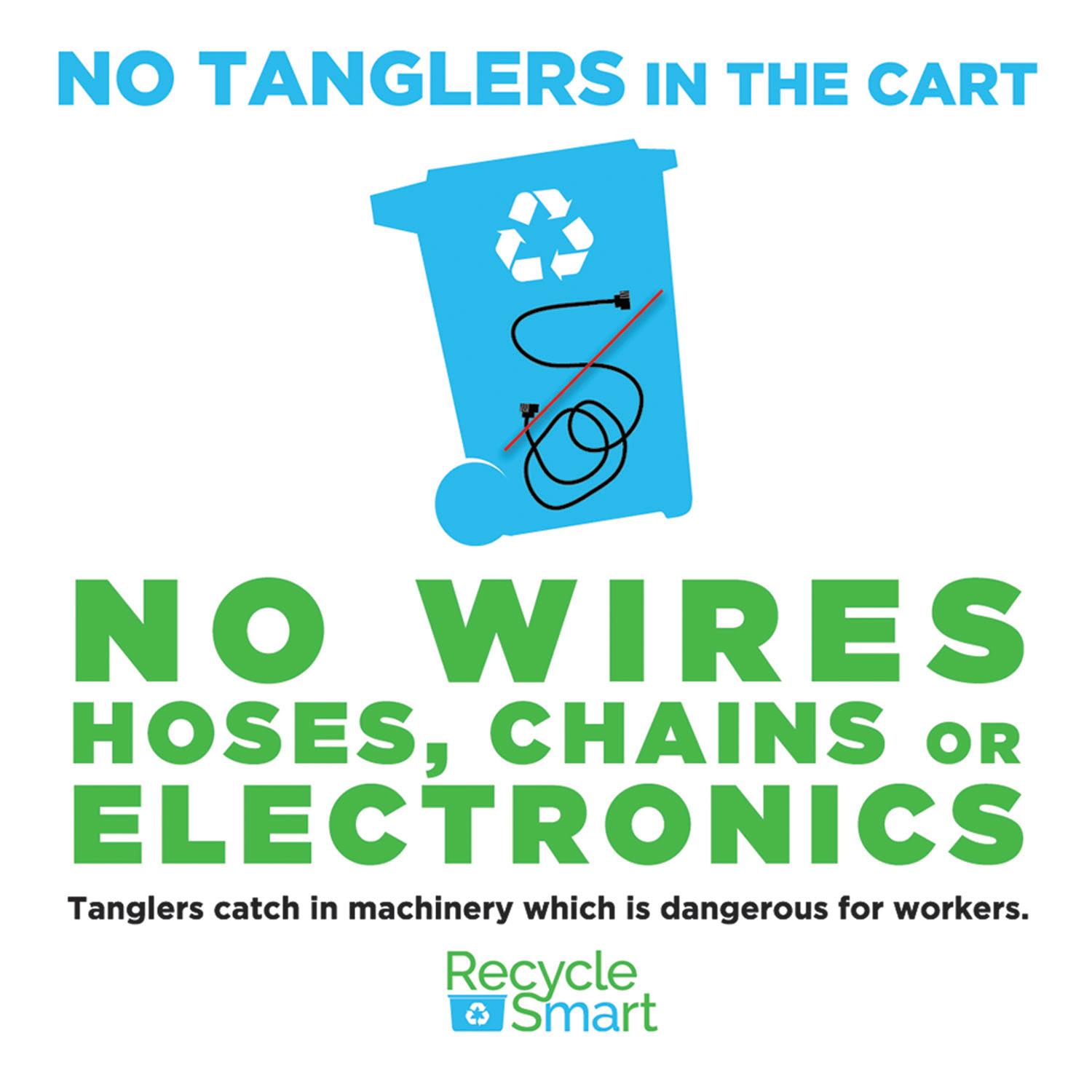
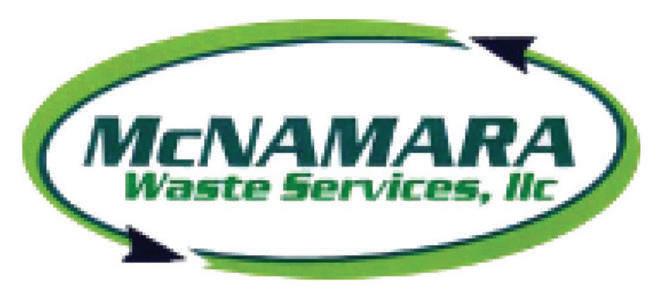
WOOD (see “Building & Remodeling Materials”)
X-RAY FILM
There are no special disposal requirements, but X-rays do contain a small amount of silver. Some hospital radiology departments will accept them for recycling. B.W. Recycling, Inc. accepts mailed x-rays for recycling: xrayfilmsrecycling.com.
YARD WASTE (Leaves, grass, brush, Christmas trees)
Throwing away leaf and yard waste as trash is prohibited by state waste bans. Some communities collect yard waste seasonally for wood chip production or composting; for local contact information, see the Community Recycling Information table in this guide. Goat farmers often accept bare Christmas trees as food. Visit mass.gov/composting-organics to learn about composting yard waste in your backyard.
YOGA MATS
Yoga mats are not recyclable locally, but can be repurposed. Some animal shelters can reuse them. Search online for “yoga mat reuse,” or offer via an online sharing group (e.g. Freecycle.org or a “Buy Nothing” Facebook group). TerraCycle offers a feebased Sporting Goods - Zero Waste Box™ that accepts yoga mats.
Looking for something that is not on this list?
Here are local resources with more information:
Springfield MRF’s “What’s Recyclable” page: springfieldmrf.org/whats-recyclable-atthe-mrf
MassDEP’s Recycle Smart Recyclopedia: recyclesmartma.org
Please help us to improve this guide for the next edition! If you encounter errors or have suggestions for changes or additions, contact us at PioneerValleyRRR@gmail.com Thank you!
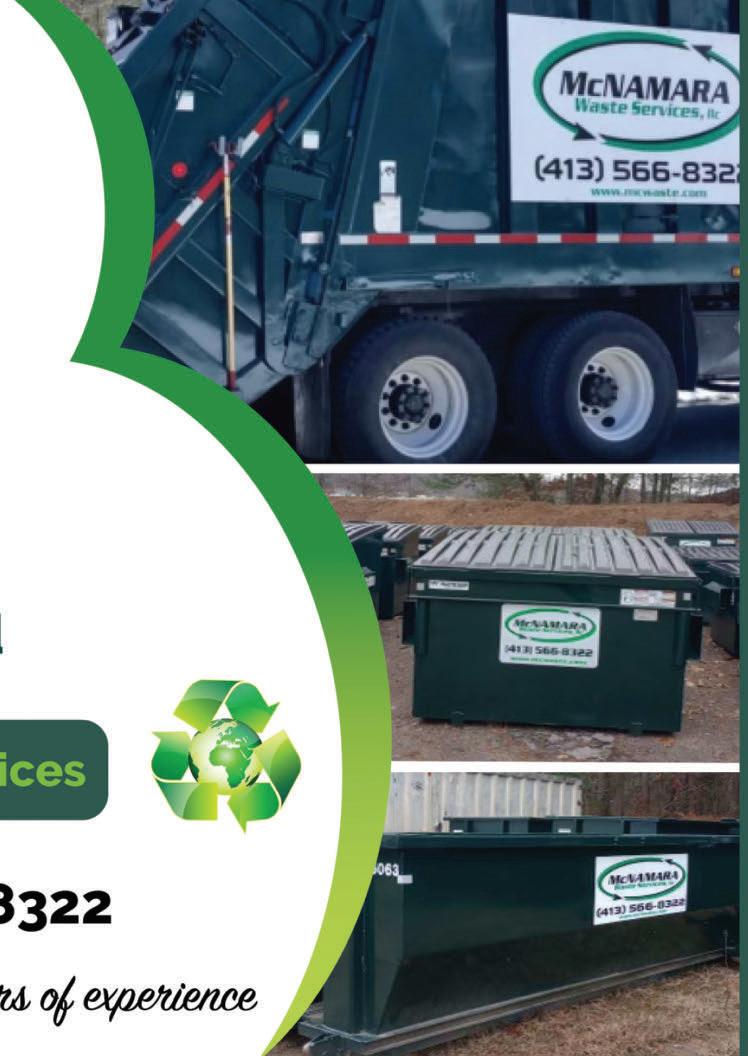
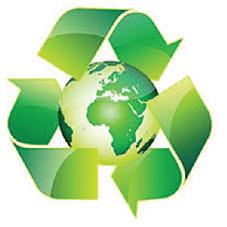
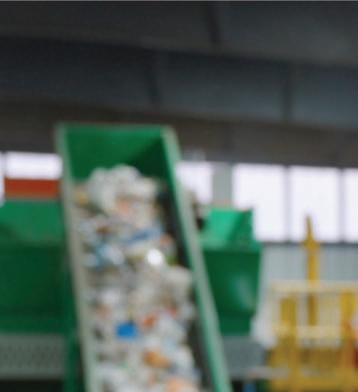
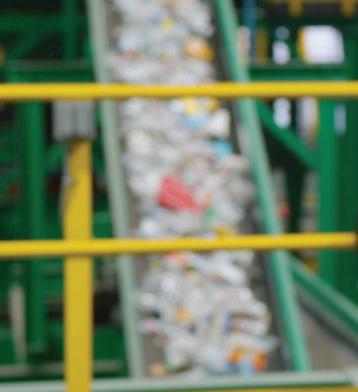

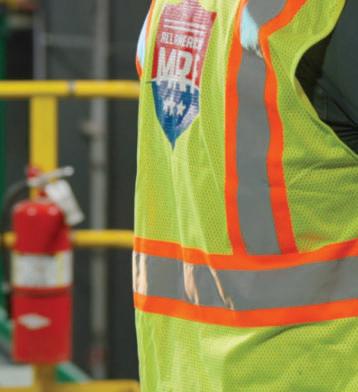
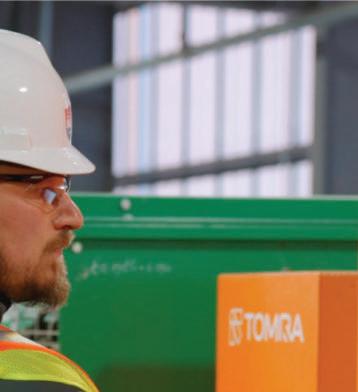
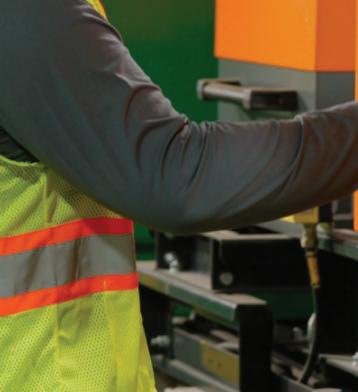

For over 50 years, we’ve been working to make sure your recyclable materials are just that – recycled.

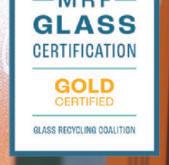
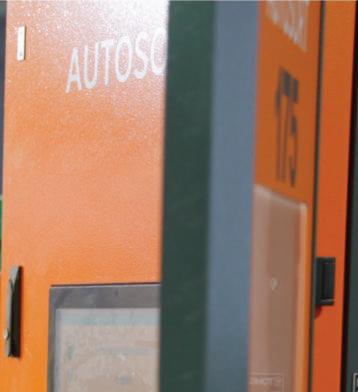
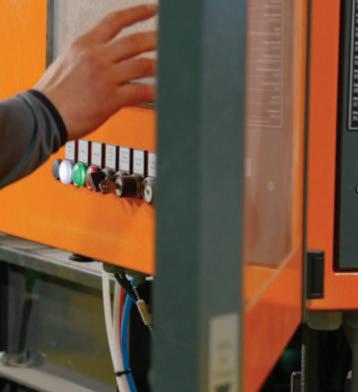
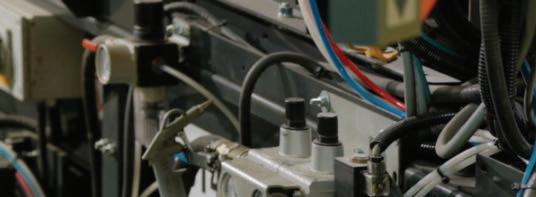
At USA, our commitment to innovation has driven us to develop one of the largest and most advanced material recover y facilities in the countr y Powered by ar tificial intelligence and state -of-the -ar t scanning technology, this award-winning system has been designed to recycle more quickly, cleanly and efficiently than ever before.
This means our customers can now recycle items such as “black plastics,” cold cups and lids, yogur t containers, and all #5 packaging, which are considered non-rec yclable, or trash, at most rec ycling facilities in the countr y usarecycle .com
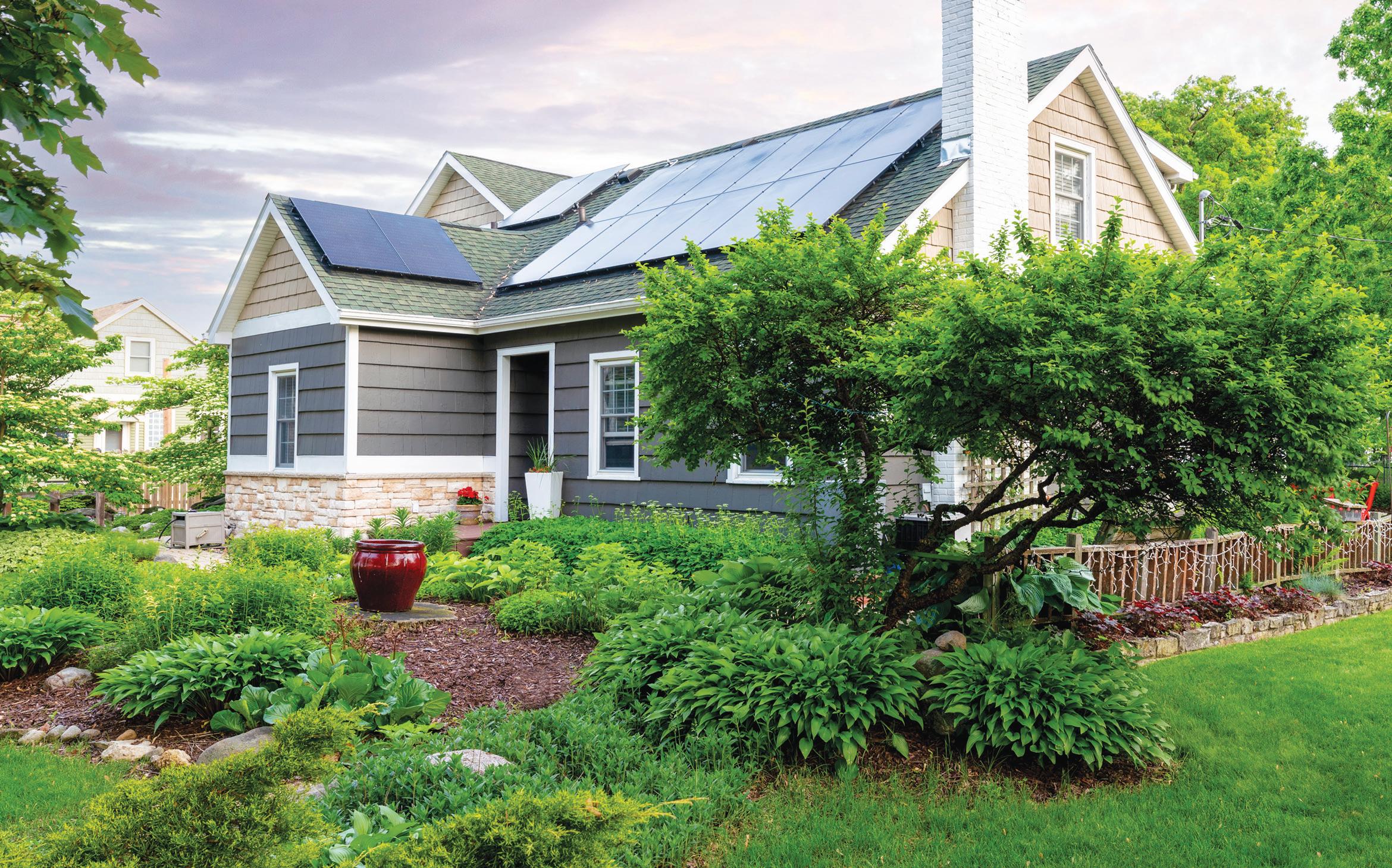
Consumers shopping around for home improvement projects may be leaning toward overhauls that can reduce energy consumption and save them money in the long run.
This is a driving factor behind a growing number of homeowners investigating solar energy for their residences.
How does solar power work?
Solar power harnesses the sun’s energy and converts it into electricity that can be used in homes. Many people are familiar with photovoltaics (PV), which are the panels that absorb sunlight and create an electric field across their layers. Another solar technology, known as concentrating solar power, is primarily used in large power plants and is not appropriate for residential use, according to Energy.gov.
According to the Office of Energy Efficiency & Renewable Energy, hundreds of thousands of solar panels have been put in use across the United States since 2008.
Costs associated with solar
The upfront expense of solar panels is significant, costing anywhere from $10,000 to $14,000 for initial installation. However, comparatively speaking,
homeowners can spend $1,500 or more per year on electricity, so solar panels will pay for themselves over time. Keep in mind that costs may vary depending on energy needs and how many panels will be required to service the system.
How much electricity can I expect?
The Federal Trade Com mission’s Consumer Advice says that the amount of power generated from a solar energy system de pends on a few factors:
1. The average number of hours of direct, unshaded sunlight your roof gets each year;
2. The pitch (angle), age and condition of your roof, and the compass direction it faces;
3. The size and strength of your system; and
4. Environmental factors such as snow, dust or shade that may cover the system.
Consumers can contact their utility companies to find out
program pays the homeowner money or gives credit for excess power the system produces and returns to the electric grid. Individuals also may be eligible for energy tax credits or other benefits. Homeowners may find it worthwhile to explore solar energy, particularly if they
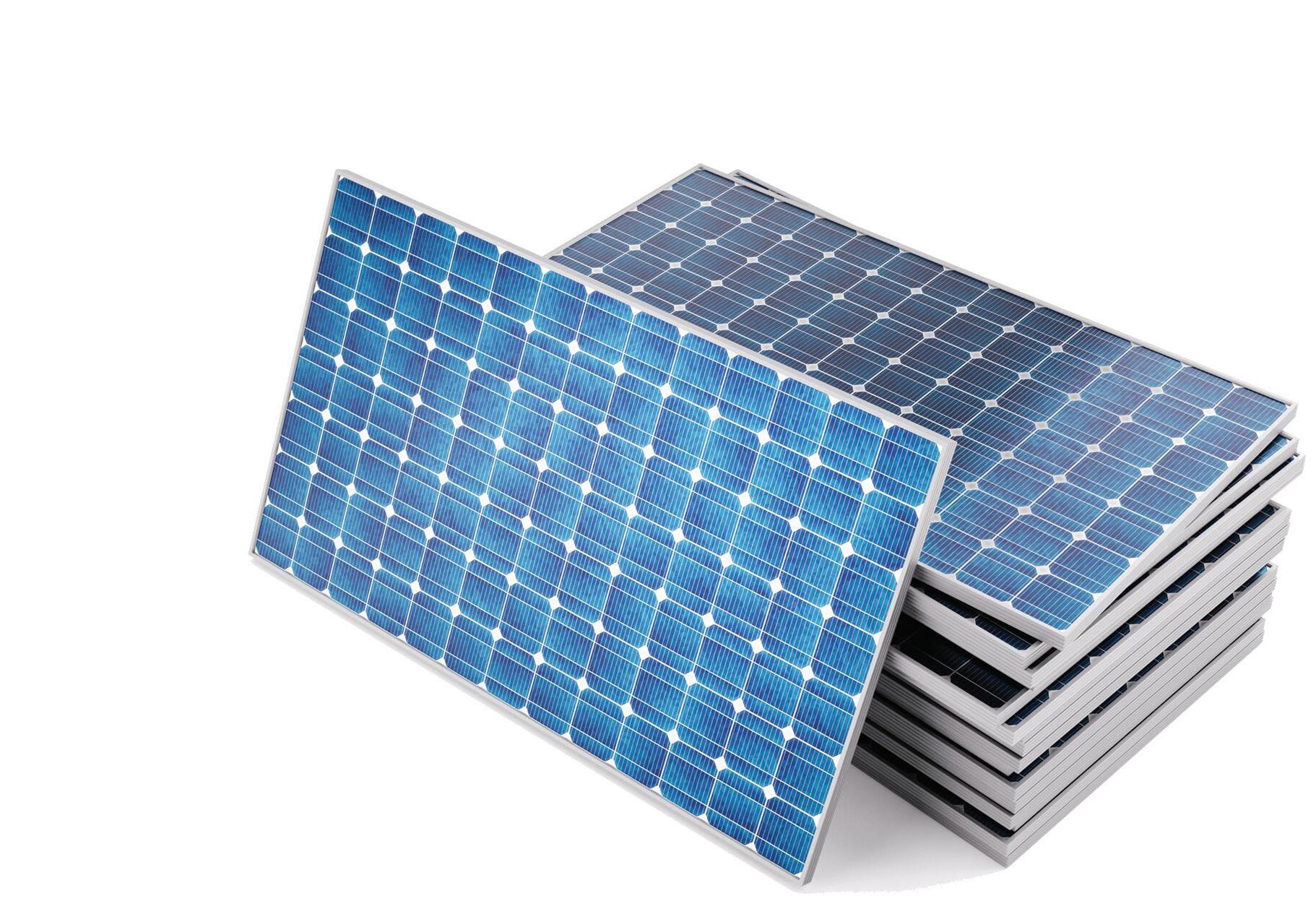
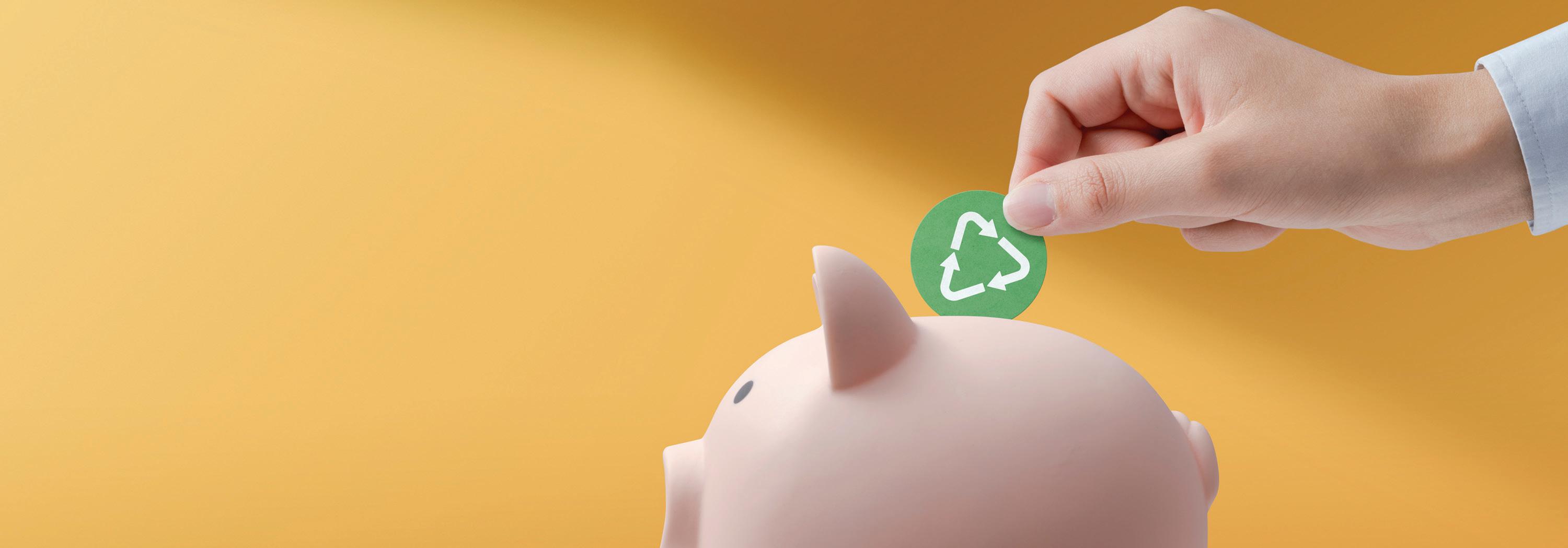
Waneta T rabert Chair, Mass Product Stewardship Council
Director, Sustainable Materials Management Division, City of Newton
According to the most recent state data, Massachusetts generated 6.2 million tons of trash in 2023.
From the 2022 waste characterization study over 40% of that trash consisted of easily recyclable material such as
printed paper and cardboard boxes, glass bottles and jars, plastic bottles, tubs and jugs, and metal cans. Another 12% was recyclable goods including paint, mattresses, electronics, batteries and tires. Our current collection systems are in need of significant reform to increase convenience and decrease costs to recover more of these valuable materials before they end up in the trash. As a reminder,
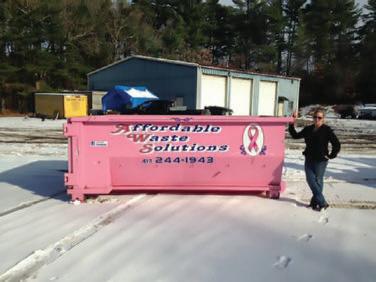
recycling offsets the need for mining and extraction of raw materials, which cause significant environmental harm. Why is it important to increase recycling? Massachusetts faces a looming disposal capacity crisis that has already and will continue to significantly increase the costs of managing our trash, especially over the next 5-10 years. Municipalities have seen their disposal costs sky-
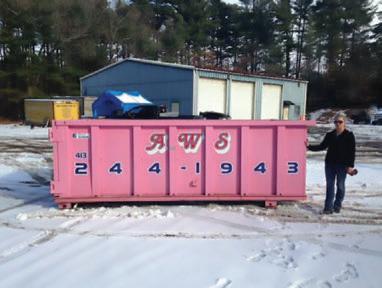
rocket and MA has the highest trash tip fees in the country. Over 40% of our trash is now being exported, much of it by rail, to other states as far away as Alabama. The average tip rate for the disposal of trash in western MA is $104 per ton, with waste being transported to a number of states, including New York, Pennsylvania and Virginia. Extended producer responsibility (EPR) laws are a proven solution to
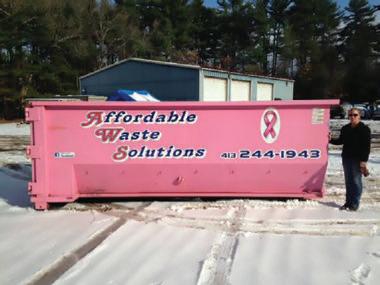
develop sustainably funded collection networks that make doing the right thing easier for everyone.
Municipal waste management systems were established a century ago to manage wastes like ashes, food scraps and horse manure, rather than the wide array of manufactured goods and packaging which dominate today’s trash and recycling
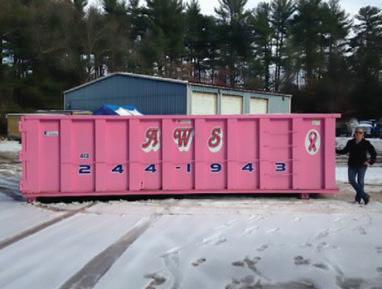

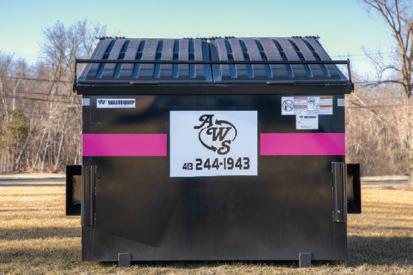
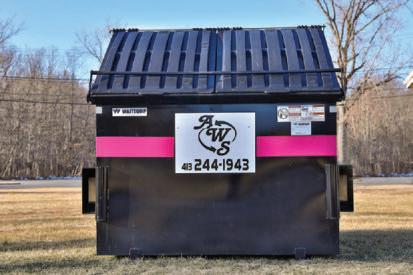
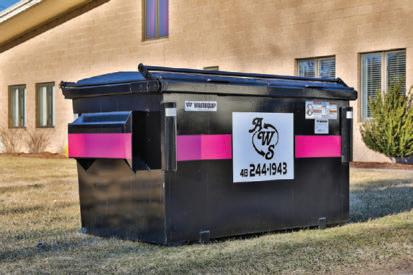
bins. Local governments do not have any input into the design or marketing of products, extremely limited influence over consumer behavior, make no profit from the products at the time of sale, and do not have the resources to adequately address the rising volume, toxicity and complexity of discarded products.
Yet, these are costs paid by private citizens, local businesses, and local governments (using taxpayer funds) to manage products at the end of use. These costs are, in effect, subsidies to producers of such products. These subsidies enable and encourage producers to design products for disposal without regard to end-of-life management. Laws regulating toxicity are significantly behind in covering chemicals put in consumer products to limit exposure and potential health impacts. Extended producer responsibility is a policy approach in which manufacturers, brand
owners and importers are legally responsible for the cost and, in many cases, the collection of their post-consumer products. This approach, when thoughtfully put into law and enforced, incentivizes design of products that are more durable, easier to repair and recycle, and less toxic. These laws have been highly effective in Europe and Canada to increase recycling rates.
EPR systems create jobs and economic development in direct proportion to the amount of material recycled while businesses that provide take-back opportunities for their customers or participate in EPR programs can create customer loyalty and enhance the image of their brand.
For example, Connecticut residents can take unwanted paint (latex OR oil-based) to many local hardware stores and drop the paint off for recycling (latex) or responsible disposal (oil-based) at zero cost. This program is managed by a non-profit organization called PaintCare, which was established by paint manufacturers. The funding
for the program comes from a small fee when new cans of paint are purchased. Consumers of paint fund this system instead of taxpayers, manufacturers of paint manage the funds and keep the collection network running, and it couldn’t be easier to get rid of unwanted paint. Contrast this with the patchwork system in Massachusetts where residents need to wait for and typically pay for a household hazardous waste collection for oil-based paint, but latex paint recycling may or may not be available.
In 2019, the Massachusetts Municipal Association passed a resolution which supports statewide producer responsibility legislation. This resolution was sought in response to rising costs that municipal governments and their residents have seen in recent years for both trash and recycling costs.
Late in the 2023-2024 legislative session, the Mass General Court (State Legislature) passed a law that included the establishment of a commission on extended producer responsibility in 2025. The
goal of this commission is to make recommendations on extended producer responsibility policies that will benefit the Commonwealth. This is greatly needed because EPR can help to address the disposal capacity crisis and bring costs down. The work of the Commission will start in April and be completed by the end of 2025. The 21-member Commission, led by the MA Dept. of Environmental Protection, will establish EPR recommendations for management of paint, batteries, mattresses, packaging/ printed paper (which would include most household recyclables), and electronic waste. Neighboring states have successfully adopted EPR for many products to address their similar issues of dwindling space for trash and rising costs. Because Massachusetts is behind other states such as Connecticut, Rhode Island, Maine, Vermont and New York when it comes to passing and implementing extended producer responsibility laws and programs, there is an opportunity within the 2025 EPR commission to
be thoughtful and intentional in setting up a framework to improve collection for a variety of hard to manage materials. There may even be an opportunity to be innovative and serve as a model for other states to streamline their programs.
We encourage municipal governments and their residents to engage with their elected representatives and to encourage them to co-sponsor EPR bills this session. The cost for the collection and management of our discards falls on our municipalities, thereby onto each of us as taxpayers. We have no control over what is offered on store shelves, nor over the buying decisions of our peers. Our waste management systems were not designed to handle the ever-changing array of products and packaging now available in the marketplace. EPR legislation shifts the costs from the current outdated and inefficient model to where it belongs: onto the manufacturers/ producers!
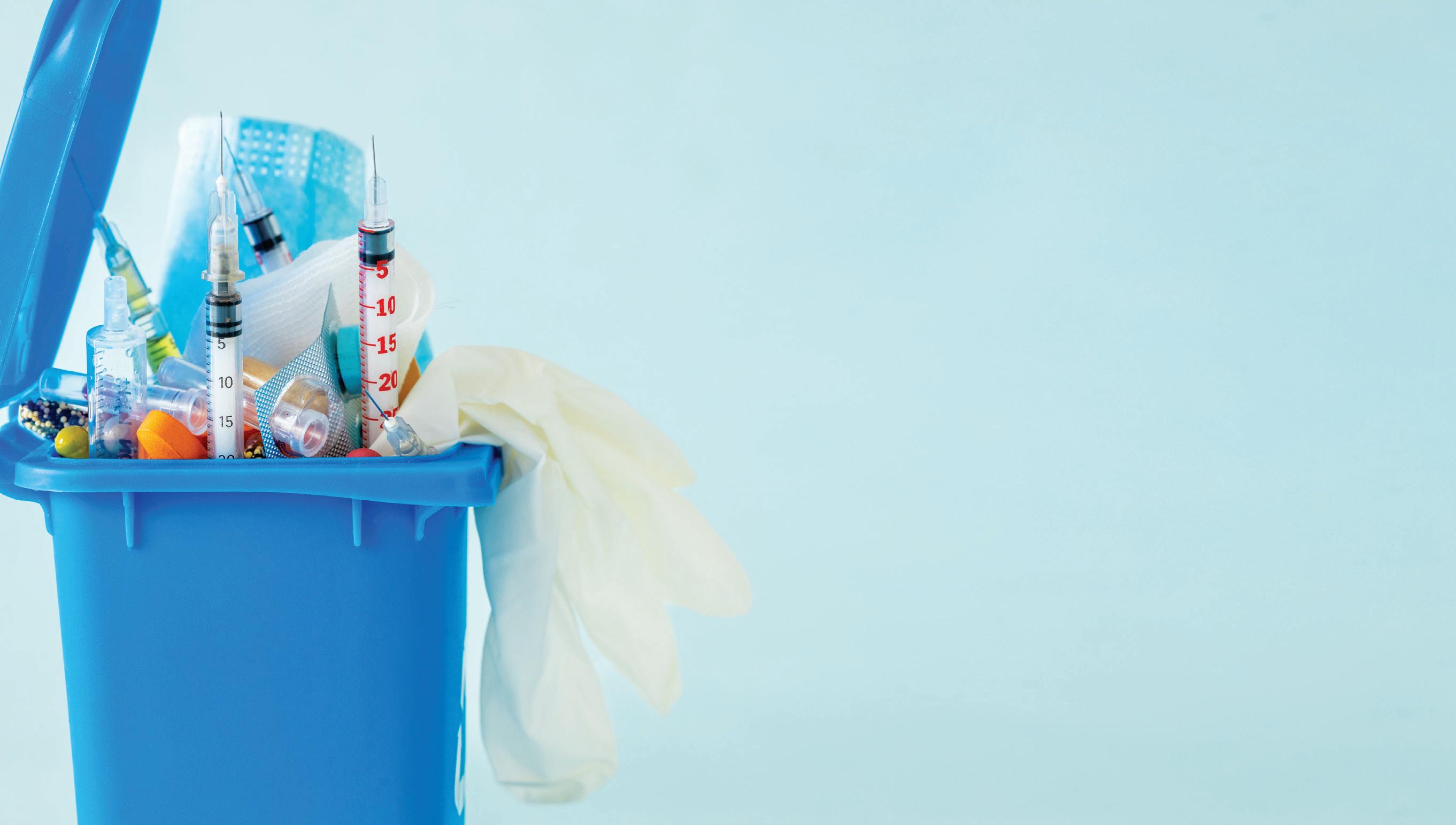
Bring sharps in a hard container such as a laundry soap bottle to your local Health department
Bring medications to your local Police department for safe disposal
Contact your local health or public works department for options
Katherine Bishop Kendrick with children Madeline and Oscar Kendrick cut up some of their and dad Ethan Kendrick’s favorite fruits and vegetables, discarding the trimmings for composting by Banana Compost. (Photo courtesy of Anne-Gerard Flynn)
Back in the summer of 2021, long-time friends
Matt Gilman and Steve DeMont found themselves in agreement about the environmental value and possible business potential of collecting food scraps for composting.
A nne-G erard F lynn
SPECIAL TO THE REPUBLICAN
Composting allows microorganisms to feed on such matter to create what can be added to improve a soil’s properties and support plant growth and health. It lowers global warming emissions by diverting the waste from landfills to enhance and manage decomposition.
“I did a little research on how to improve my gardening and I stumbled upon composting,” said Gilman who, together with DeMont, launched Banana Compost three years ago. Its subscription fee includes curbside pickup for customers’ discarded food scraps and a
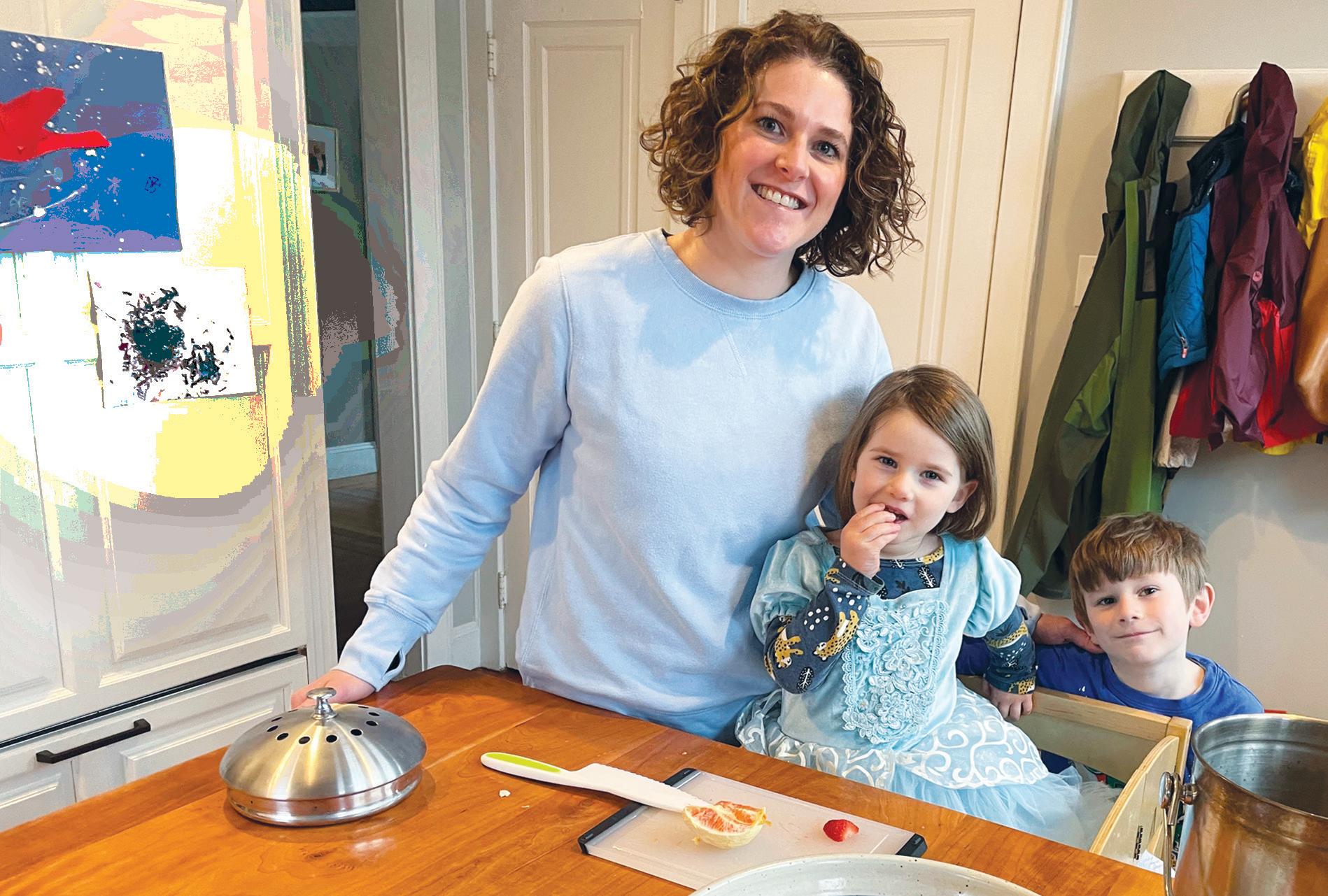
twice-a-year give back of finished compost to “top dress a garden, houseplant or flower bed.”
The business collects 7,500 pounds of food scraps weekly from 130 customers, including schools, restaurants, and cafes, mainly in Hampden County, and customers share a loyalty to the eco-friendly service.
Katherine Bishop Kendrick “didn’t like the idea of our food waste ending up in a landfill” and signed two months after Banana Compost launched. She and husband Ethan prepare “a variety of meals since we are omnivores, which means fruits, vegetables, grains, and meat are staples in our home.”
“With two little kids, their eating habits can vary—some days they eat a lot, other days barely anything,” she said.
“This results in leftovers from school and daycare lunches, foods that spoil before getting eaten, and various food scraps like banana peels, apple cores, and strawberry tops, all of which now go to compost instead of the trash.”
It is similar for Brian Gregg, wife Sara and their two young children.
“Now that we have eliminated food waste from our trash, we only use a blue bag if we
have a party,” said Gregg, referencing buying overflow bags when trash exceeds what fits in his town’s standard 35-gallon barrel for pick up.
“Most weeks we can fit all of our trash into the barrel, which was unthinkable before we started composting,”
Shelly Bathe Lenn said while she tries “not to over buy, being able to compost helps me feel less guilty about throwing away excess food.”
Full-time college student Minhtam Tran likes the service’s convenience and it being “important from a sustainability standpoint.”
Massachusetts, which is said to produce nearly one million tons of food waste each year, has been highlighted for its requirement that businesses generating a half-ton of food waste weekly must divert it for purposes like composting rather than dispose of it as trash.
More than a quarter of the state’s municipalities have a residential food waste collection program. The majority of these have drop-off sites, some offer curbside pickup and a small number, both.
Approximately half of the municipalities sell backyard compost bins to residents.
As Arlene Miller, chair of the Springfield Materials Recy-
cling Facility advisory board, noted “it is estimated that about 22% of household trash is food waste” and by diverting it into compost “saves disposal costs.”
“We have single households to families of four or more,” said Gilman of his business. “People who best utilize us do a lot of cooking. We take trimmings from fruits and vegetables, minus the produce stickers, meat and bones, dairy but no liquid like soup or milk, and plant trimmings.”
The service provides customers with a counter container for food scraps that can be kept in the freezer for convenience and a five-pound white bucket with cost tied to weekly or every-other-week pickup, additional buckets, and location. A similar service is offered to educational institutions, commercial enterprises, municipalities, and special events.
“Most of the buckets end up holding 15 pounds but we do collect some that are like 35 pounds (depending on the density of material),” Gilman said. “We recommended keeping the bucket in a secure area outside or if you have a garage that’s a perfect spot for it. We clean the bucket when we do the pick up.”
He added that the “bucket lids are on tight and in three years of operation we never have had any animal issues.” Gilman trucks the waste to an area farm where DeMont uses a tractor to combine it with other biodegradable, nutrient-rich matter, turning the mix several times over a period of days to support its decay.
“In about six months to a year you have finished compost that you can use,” Gilman said.
The Ludlow-based business is part-time for the 2014 Springfield College graduates – Gilman is an athletic trainer, DeMont, a physical education teacher - but has grown to allow earnings to be re-invested for upgrades like a new truck.
Its original name, Commonwealth Sustainability, was retired for a more distinguishing one.
“We incorporated our logo –a yellow banana - into the new name and my wife Catherine came up with the slogan, ‘We make composting A-Peeling,’” Gilman said. “The slogan fits what we really wanted to do.”
For more information visit https://www.bananacompost. com/ and https://www.mass. gov/composting-organics.
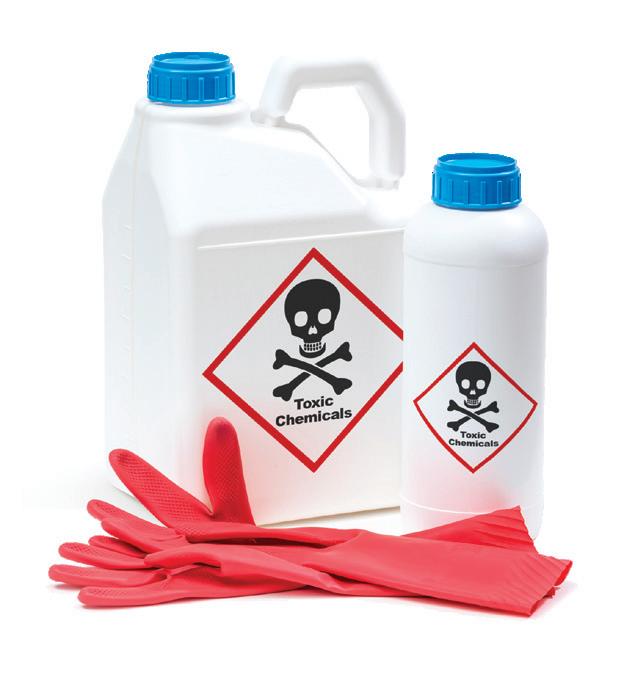
Protect your home and Western Massachusetts by properly disposing of old household chemicals and mercury containing items.
Look for products labeled: CAUSTIC, TOXIC, CORROSIVE, POISON, FLAMMABLE, WARNING, DANGER, CAUTION
Pesticides
Insect sprays
Fungicides
Flea powder
Herbicides
Root killers
Rodent killers
Muriatic acid
No-Pest strips
Pool chemicals
Lighter fluid
Used motor oil
Engine degreaser
Gas treatments
Gasoline
Kerosene
Solvents
Automobile batteries
Brake fluid
Carburetor cleaner
Creosote sealer
Asphalt sealer
Refrigerants
Antifreeze
Transmission fluid
Radiator flush
Aerosol cans
Roofing tar
Solvents
Varnish
Sealants
Wood strippers
Rust inhibitors
Paint thinners
Degreasers
Wood preservatives
Wood strippers
Stains
Lead & oil–based paints
(No latex paint)
Photo chemicals
Oven cleaners
Furniture polish
Upholstery cleaner
Metal polish
Mothballs
Spot remover
Drain cleaners
Toilet cleaners
Fluorescent light bulbs
Mercury thermometers
Mercury thermostats
Chemistry kits
Arts & crafts supplies
Button batteries
Rechargeable batteries
Medications, Fluorescent bulbs, Latex paint, empty containers from hazardous products, asbestos, gas cylinders, radioactive material, explosives (including ammunition & fireworks)
* LATEX PAINT is not hazardous. Completely dry, uncovered cans of latex paint may be placed with regular trash. Below is a listing of scheduled residential HHW collection programs in Hampden County for 2025. Pre-registration is always required. Residents of the towns and cities listed below may participate in their own community’s event, usually at no cost. In some cases, arrangements can be made for non-resident and small businesses to participate for a fee. If your community is not listed, call your community representative.
2025 Dates
April 19, May 10 & 17
August 16, Sept. 20 & 27 Springfield Barry Smith 413-736-3111
September 6th Agawam Tracy DeMaio 413-821-0624
Mondays & Wednesdays 9am-4pm Saturdays 9am-1pm
East Longmeadow, Longmeadow
* Check town website for details Liz Bone DPW NEDT Westfield (Fees may apply) 413-525-5400 x1108 413-567-3400 866-769-1621
May 3rd, October 4th Chicopee Stan Kulig 413-594-3557
October 11th West Springfield Lynne Turner 413-263-3231
Mondays & Wednesdays 9am-4pm Saturdays 9am-1pm
New England Disposal Technologies (open to all, small fees may apply) NEDT Westfield 866-769-1621
Please note: this schedule is subject to change due to municipal budget constraints and uncertainties.
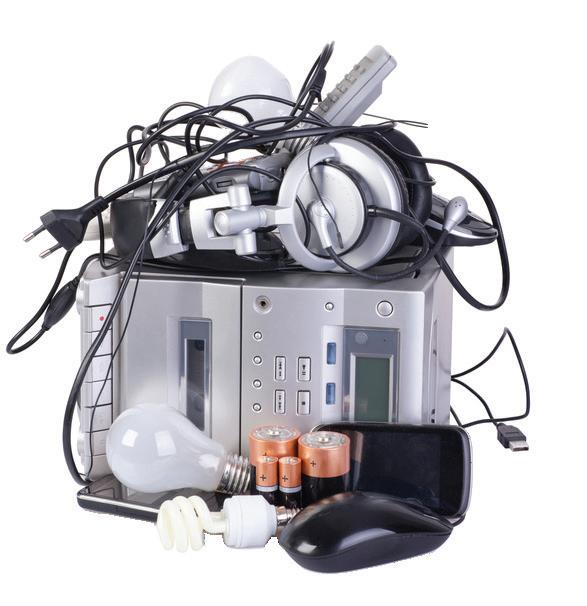
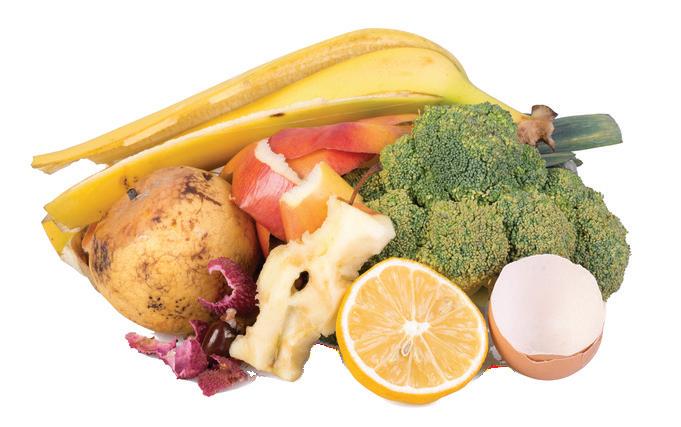
Below is an explanation of WHY they are not acceptable. Please bear in mind that all materials collected for recycling are sorted and then baled and sent to a vendor to be turned into new materials. It is very important for these vendors that the materials be clean and correctly sorted. If there is NO MARKET for a material, EVEN IF IT APPEARS to be recyclable, then that material cannot be collected. Materials are sorted both by machinery and also by hand. Adding materials which cannot be recycled means those materials will have to be sorted out from the proper recyclables and then THROWN AWAY. This adds both time and expense to the recycling process, so PLEASE DO NOT include any of the following items:
Plastic Bags: These cannot be recycled through your recycling program because they wrap around the conveyor belt at the recycling facility, which causes the line to be shut down in order to strip away all the bags. Bags CAN be recycled through your local grocery stores.
Bagged Materials: These cannot be recycled both because they include plastic bags (see above) but also because they would need to be opened by hand to sort materials. There is neither the time nor the personnel to accommodate this. Bagged materials will be THROWN AWAY.
Button-Cell & Rechargeable Batteries: Button-cell batteries, lithium primary batteries and rechargeable batteries, containing reactive chemicals and metals that generate electrical energy, should never go in any trash or recycling
bin as they can cause fire. Contact your local municipality for safe disposal options.
Items that Wrap and Tangle:
Includes items such as hoses, light strings, anything which could wrap around a conveyor belt (think of materials which clog up a lawnmower, for instance). These materials are both non-recyclable and cause the line to be shut down at the recycling facility.
Syringes: These are a bio hazard and pose a danger to workers. Needles of any kind should be disposed of properly through a municipal or other safe SHARPS disposal program. Contact your local municipality for options.
Food Waste: Food Waste should never be left inside of recyclables, nor placed in a recycling collection bin. Think of the icky mess and the
sorters having to handle the waste! Food waste CAN BE COMPOSTED. Check with your municipality for options including compost bin purchase programs.
Hazardous Waste
Containers: Hazardous chemicals leach into plastics, rendering the plastic unfit for other uses. Please deposit empty containers which have held hazardous chemicals into the trash.
Styrofoam: Expanded polystyrene (EPS, trademarked ‘Styrofoam’) is not accepted at local recycling facilities, as its light weight makes it too costly to ship. However, EPS can be shredded and compressed into blocks to be transformed into pellets for recycling into picture frames and car bumpers. Please check the Springfield MRF website for Styrofoam recycling options
COLORED Plastic cups: Such as Solo cups are categorized as a # 6 plastic. This is the same category as Styrofoam, polystyrene, and expanded polystyrene. There is no market for these items, please deposit in trash. Clear plastic cups are acceptable.
Light bulbs: Incandescent light bulbs have a different type of glass from regular bottles and jars, which makes them unrecyclable, plus they invariably break making them a hazard for workers. These should be deposited in the trash. Fluorescent light bulbs contain mercuryand should be properly recycled. Several large home improvement stores accept fluorescent bulbs free of charge. Please also check with your municipality to see if they collect fluorescent light bulbs
Pots, pans and scrap metal: These items get caught in the con-
veyor belts at the recycling facility. Please check your municipality for scrap metal and swap shop options.
Dishes: Ceramics and other materials which make up dishware is not recyclable. Please check with your municipality for swap shop options; otherwise please place in the trash.
Electronics: Electronics contain some hazardous chemicals and sometimes leaded glass. Electronics should be properly recycled; please check with your municipality for electronics recycling options
FOR MORE INFORMATION ON RECYCLING THESE ITEMS PLEASE CHECK THE SPRINGFIELD MATERIALS RECYCLING FACILITY WEBSITE AT: SPRINGFIELDMRF.ORG.





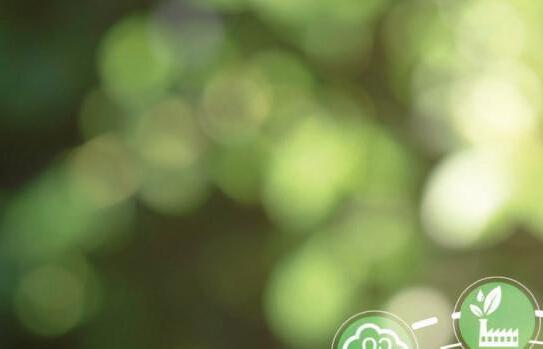





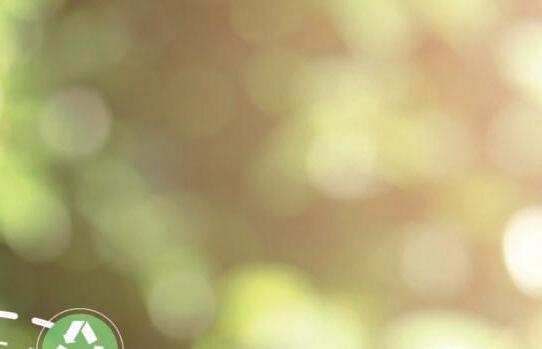
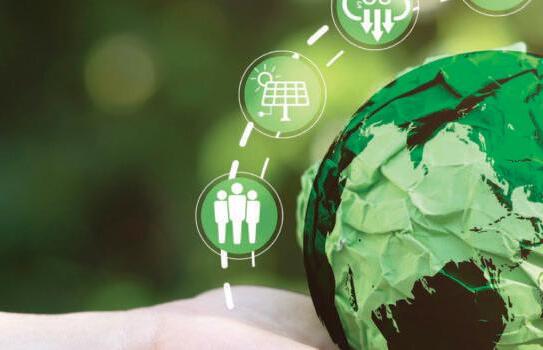
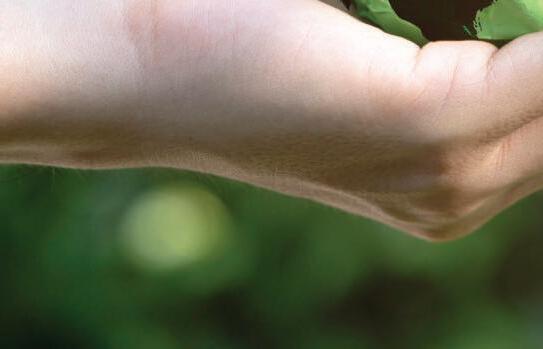

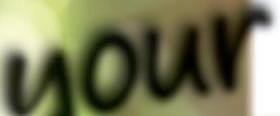





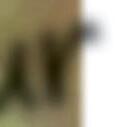


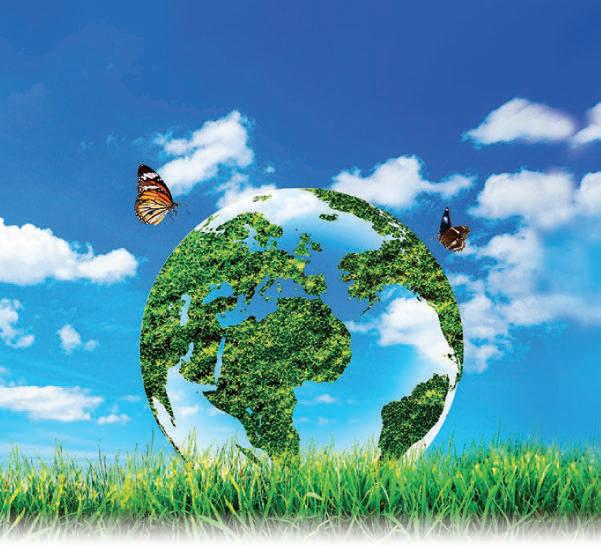







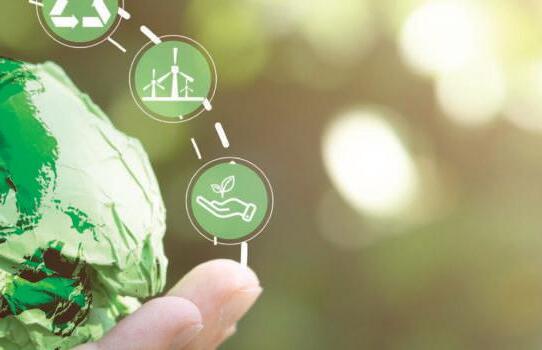
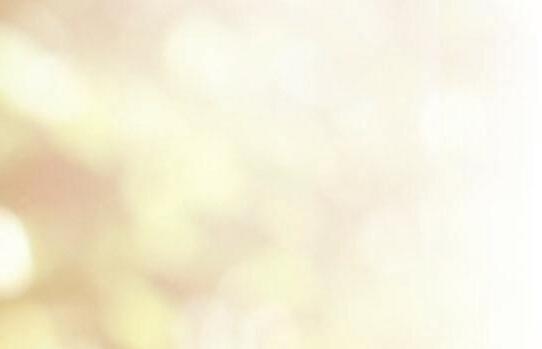

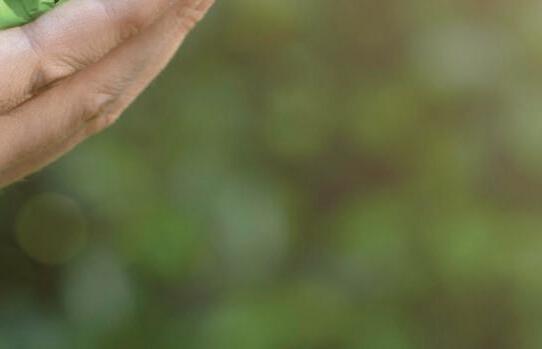
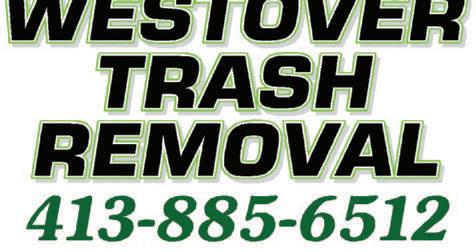

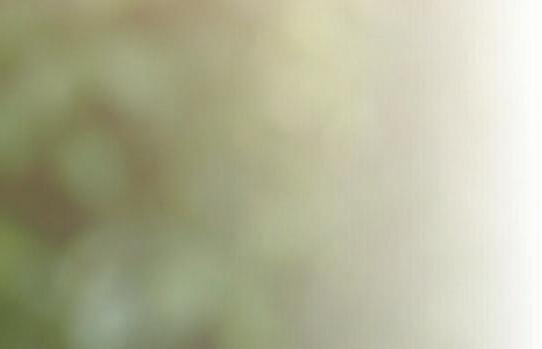


thought about why composting is important, or how it fits into your life?
We produce organic waste at home, but also at work and at school. Here are some great reasons to compost your organic waste in any of these settings!
Reduce greenhouse gas. Composting keeps organic materials out of the landfill. When organic matter decomposes in a landfill, it produces methane, a potent greenhouse gas that is 21 times better at trapping heat in the atmosphere than carbon dioxide.
Save some money. Composting your food scraps, leaves, and grass clippings can help you save money on disposal costs (especially if you pay for trash pickup), and also reduce your costs for garbage/yard waste bags. Help your garden grow. Finished compost is a nutrient-rich soil amendment, which means it can help reduce the amount of fertilizer you need to buy, and it can help you grow stronger, healthier plants!
Composting can reduce operating costs. Since most businesses pay for waste disposal, diverting organic
it away can make trash pickups less frequent, which reduces disposal costs. It’s the law. Massachusetts businesses that produce one half ton or more of food waste per week are legally required to divert it from the trash. One of the acceptable methods of diversion is compost! You can get help! RecyclingWorks in Massachusetts (RecyclingWorks), a program funded by the Department of Environmental Protection, helps businesses and institutions maximize recycling, reuse, and composting opportunities. Your business could receive no-cost technical assistance, staff training, and signage to help increase your organic waste diversion. RecyclingWorks also offers no-cost technical assistance to businesses that accept or would like to begin accepting organic waste for composting. For assistance, contact RecyclingWorks at 888-254-5525 or visit www.recyclingworksma. com.
Save the budget. As schools continue to search for opportunities to stretch their funding, composting is an easy way to save. Composting organic waste instead of adding it to the trash can reduce costs by making trash pickups less frequent and reducing the number of trash/brush bags needed.
Hands-on education. Composting offers excellent opportunities to educate students about a variety of topics, including food webs, decomposition, physics, the waste stream, and more! Additionally, if your school has a garden, compost makes an excellent soil amendment.
Join the GREEN TEAM! The GREEN TEAM is an interactive educational program that empowers students and teachers to help
waste reduction, recycling, composting, energy conservation, and pollution prevention. Joining the GREEN TEAM makes schools eligible to receive composting and lesson plans at no cost.
For more information, visit thegreenteam.org!
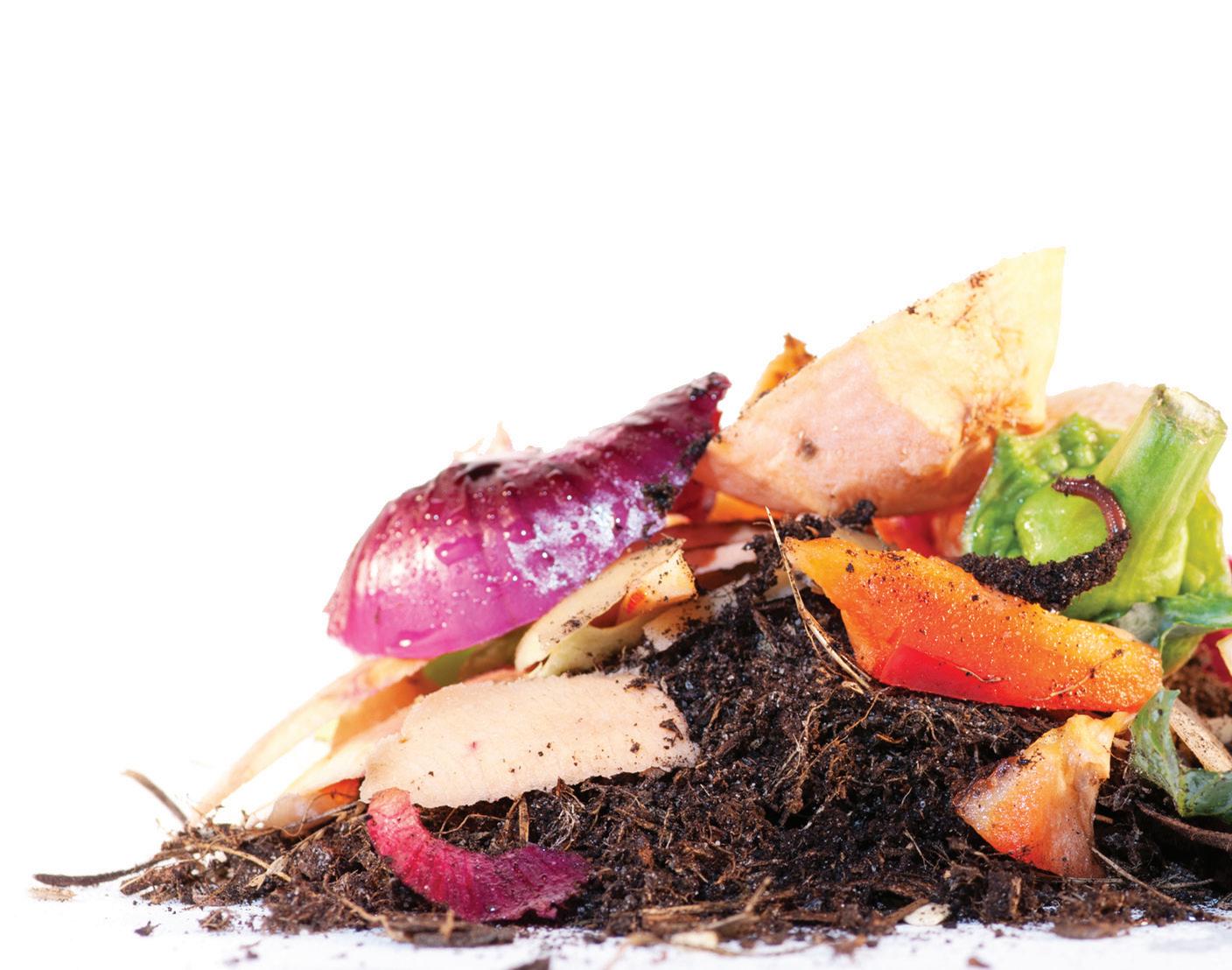
TIP: In your kitchen, use a small pail or bowl with a lid to collect fruit and vegetable trimmings, eggshells, coffee grounds and filters, stale bread and leftover grains.

This table provides contact information regarding your municipality’s trash and recycling disposal services. For the most up to date disposal information, including yard waste and bulk disposal options, please visit your community’s website listed below.
Community Website Contact Info. Collection Type Drop Off Location Hours of Operation Available
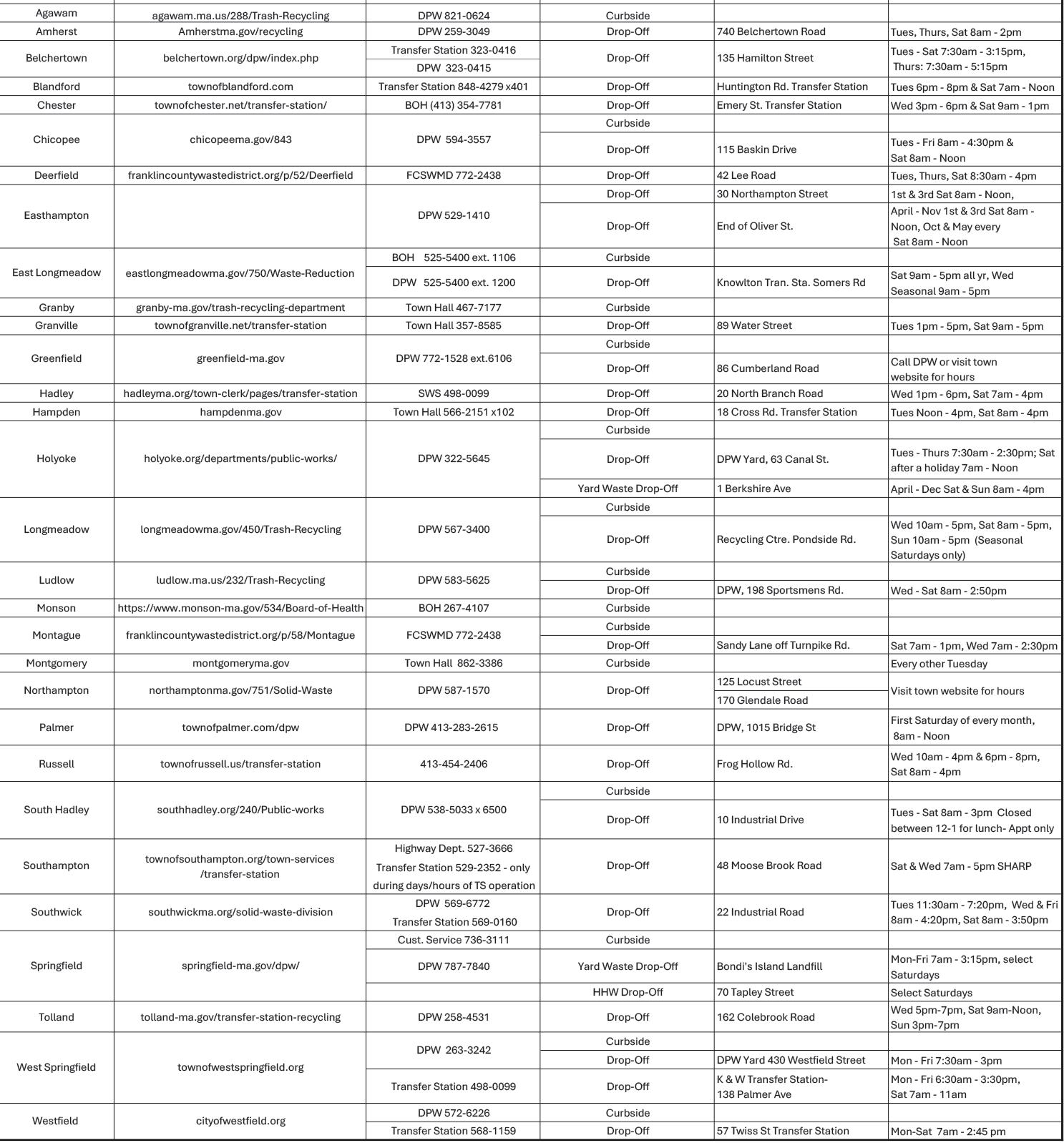
Here in the Pioneer Valley, we are proud to provide a full range of services to businesses and communities alike. From construction and demolition recycling in Holyoke, to our full service recycling facility in Springfield, and all our hauling infrastructure in between our fully integrated services can help you achieve your sustainability goals.
For over 45 years, Casella has served local communities. Each year, we recover over a million tons of recyclable material from the waste stream, and over the next decade it is our goal to double that amount.
For over 45 years, Casella has served local communities. Each year, we recover over a million tons of recyclable material from the waste stream, and over the next decade it is our goal to double that amount.
Throughout our operations in Massachusetts, we have over 228,000 customers and nearly 400 employees who serve their needs providing economically and environmentally sustainable services. Through those efforts we are proud to help keep Massachusetts safe, clean, and thriving.
Throughout our operations in Massachusetts, we have over 228,000 customers and nearly 400 employees who serve their needs providing economically and environmentally sustainable services. Through those efforts we are proud to help keep Massachusetts safe, clean, and thriving.
Here in the Pioneer Valley, we are proud to provide a full range of services to businesses and communities alike. From construction and demolition recycling in Holyoke, to our full service recycling facility in Springfield, and all our hauling infrastructure in between our fully integrated services can help you achieve your sustainability goals. Visit casella.com/sustainability to learn more about our 2030 goals and how we’re helping others along their own sustainability journey.
local communities. Each year, we material from the waste stream, double that amount. Massachusetts, we have over 228,000 who serve their needs providing sustainable services. Through those Massachusetts safe, clean, and thriving. to provide a full range of alike. From construction and full service recycling facility infrastructure in between our fully your sustainability goals. more about our 2030 goals and sustainability journey. thriving. and
Here in the Pioneer Valley, we are proud to provide a full range of services to businesses and communities alike. From construction and demolition recycling in Holyoke, to our full service recycling facility in Springfield, and all our hauling infrastructure in between our fully integrated services can help you achieve your sustainability goals. Visit
Our